Several months ago, I put out a call to writers (of both genders) asking them to ‘share their secrets’. Well over a hundred responded, including around forty men (some wishing to remain anonymous). Thank you to all who have given their time generously, and who have written so honestly.
and who have written so honestly.
You’ll find articles exploring the results of the survey on this website, launching here with thoughts from male writers. The second post tackles ‘Men Reading the Erotic’ and can be read here. All issues deserve further discussion; we hope that they inspire writers and readers alike.
As ever, your comments are welcome.
Arousing Intellect and Flesh
Most readers currently associate the erotic genre with ‘steamy romance’ and, often falsely, assume it to be the province of women writers alone. In fact, several of the respondents to this survey are successful male writers of what is usually classed as ‘women’s spicy fiction’.
Meanwhile, there is a whole strata of erotic fiction (written by both sexes and aimed at male and female readers) which tackles eroticism beyond the formula of romance. Plot and characterization and the tension of tight storytelling remain important, but without guarantee of ‘happy ever after’.
 Erotic fiction is often dismissed as no more than titillation. We know that it can transport a reader to this state of arousal (and takes skill to do so) yet it also has the power to delve so much deeper. It can examine the psyche in unexpected ways, allowing us to access a realm so often defying words.
Erotic fiction is often dismissed as no more than titillation. We know that it can transport a reader to this state of arousal (and takes skill to do so) yet it also has the power to delve so much deeper. It can examine the psyche in unexpected ways, allowing us to access a realm so often defying words.
Jonathan Kemp explains, “I don’t consciously set out to write something that will arouse eroticism, I set out to describe and represent sex, or sexual encounters. If it turns the reader on, great, and I know from some readers directly that it has; but my main consideration is the language I use, the ‘reality’ I try to convey, the experience I try to explore, the subjectivity or subjectivities I am aiming to articulate or express. I’m very interested in sexuality as a form of sociality, of bodies being together, sometimes in public spaces, sometimes private. I think there is an almost anthropological or ethnographic element to why I am drawn to these situations and encounters. I want to show erotic forcefields at work, hopefully as a way of  entering the territory of what it means to be human through a different doorway.”
entering the territory of what it means to be human through a different doorway.”
Erotic fiction explores human experience through the lens of sexual desire. It has the power to move us, to disturb, to confront, to inspire, and to warm us.
As Aleksandr Voinov puts it, sex scenes allow writers to explore the psyche at its most vulnerable: ‘when the concept of the self is on the line and characters’ defences are stripped away’. “I like seeing what’s left of them afterwards,” he explains. “There’s a huge amount of satisfaction in digging for the emotional bones of a character and then hitting the point where I really feel I understand what makes them tick, sexually and emotionally and in terms of identity. I enjoy character exploration; sex/desire is the diamond-headed drill I use to crack them.”
First Inspiration to Write
While most of our male respondents note having sought out books with erotic elements from an early age as readers, far fewer recollect an early desire to write in this vein. In these cases, the impulse stemmed from failing to find fiction adequately satisfying their imagination, or from a strong desire to convey their own perspective on eroticism and sexual culture.
Patrick (originally Pat) Califia tells us,”I started looking for sex in fiction and non-fiction as soon as I could read! I was hungry for acknowledgment of what went on behind closed bedroom doors. This inspired me to try my own hand at writing because I simply wasn’t finding the sort of writing that I wanted and needed. There was so little same-sex erotica, and almost none that featured sadomasochism. I wanted fiction set in the time that I lived in, with characters facing dilemmas about sex that I too pondered late at night.”
Jonathan Kemp adds, “The impulse to write about sex was twofold: it definitely came from reading others and seeing what they did with it, but it also came from a desire to write about my own sexual experiences and describe the subculture of gay cruising in London, to celebrate promiscuity, hopefully push boundaries (creative or otherwise), and to give voice to the voiceless, in the case of my first novel, ‘London Triptych’.”
Raziel Moore notes that his writing began as correspondence with a lover but grew into exploring how we tackle our monsters. He became fascinated by how far we may be ‘devoured’ by what lurks in our psyche.
A minority of respondents admit to having begun writing with an eye to specific commercial success. Wade Esley admits, “Initially, I chose to write erotica for a terrible reason. I thought it would be an easy genre to break into, because, in my mind, there was so much poorly written erotica. How hard could it be to climb to the top of that dung heap? However, the more I read, the more I discovered truly talented writers, and became determined to write quality stories myself. Now, as with any form of artistic expression, I see my ultimate goal as moving the reader emotionally, intellectually, spiritually and, yes, even sexually.”
Why Write the Erotic?
Authors have much to say on what inspires them to explore erotic themes. Most emphasize the importance of provoking a response in readers. Much like writing ‘horror’ or ‘thriller’ fiction, writing the erotic is designed to create a visceral reaction: to stir the blood and quicken the pulse. We delight in knowing that our words have such physical power, as well as emotional and intellectual.
Nobilis Reed explains, “I get a real kick from hacking brains, getting people to think the thoughts I want them to think.” Allen Dusk states, “I’ve always liked evoking reactions; whether I turned you on or pissed you off, I did it with the power of words, so my job is done.”
One anonymous male author tells us: “Early on, I wrote to achieve personal arousal and gratification. Later, I wrote to explore what aroused and gratified me, and then took on more challenging themes. Most of the time, the process is quite pleasurable, since what I write arouses me but it can be excruciating if I’m flaying open something to see what it looks like.”
Several authors note a desire to challenge social assumptions: to crack open stereotypes and reveal emotional and sexual ‘truths’.
Patrick Califia explains, “I always thought sex was one of the most important aspects of the human condition and deserved its own celebration and interrogation. I continue to feel that writing erotica is a wonderful way to encourage people to examine their assumptions about sexuality and live closer to the edge.”
Terrance Aldon Shaw notes, “ I explore the human condition through the lens of the erotic. I want people to think about as well as experience the visceral thrill of sex. I believe that an unexamined life is no life at all. Sometimes, in order to grasp a concept—a truth within ourselves—we have to speak (or write) that truth out loud.”
Meanwhile, on the introspective, reflective process of writing, Patrick adds, “My intent is to understand events from my own lifetime. The spiral of life takes you around a few bends, and you find that you are a different person and you have new questions to ask about the past. The past and the future are the same, really, it’s all my life, it comes from me, but I know a lot more about the past than I do about the future. By standing on the edge of the well of memories and throwing a pebble into the darkness, then counting to see how long it takes to fall, I can create an oracle for myself, for my own death, and for the unknown years I have between this breath and the last.”
Will Crimson adds, “If I have a goal, then it’s to create a body of erotic writing that’s beautifully written, that mixes humor (and I love humor) with seriousness, explores our shared desires, inspires, arouses, and that makes our erotic imagination something to be enjoyed and celebrated. What makes sex erotic isn’t the sex but the emotional context: Why are characters having sex? Why do they want it? What do they want from it? How do their desires compliment each other or conflict? How are they affected by it? Our bodies are our means of expression, but our minds make us erotic. Sex is always an expression of who we are and writers who capture that meeting of human desire and erotic imagination, its conflict and resolutions, are the writers I admire.”
Eyes Wide Open
Most of the male authors taking part in this survey believe that reading has the power to encourage reflection, and to shape our world outlook, with erotic fiction fulfilling this role as effectively (and in some cases more so) than other genres.
Raziel Moore articulates this perfectly, saying, “Our perceptions can be empowered or impoverished, illuminated or benighted by fiction. At its best, fiction allows us to discover and understand things about ourselves, and perhaps share and teach us perspectives we have not encountered or may not fully understand.”
 Almost every writer notes that their understanding of their own (and others’) sexuality has expanded as a result of exploration through fiction. Thomas Roche states: “My concept of male sexiness has been thoroughly changed by erotic writing. Reading gay male porn has revised my way of thinking about my own body (even though I identify as straight).” Nicholas Tanek adds, “I like to explore the themes of individuality and self-expression. I believe that, in accepting your kink, you gain self-knowledge; you look at the world in a different and beautiful way.”
Almost every writer notes that their understanding of their own (and others’) sexuality has expanded as a result of exploration through fiction. Thomas Roche states: “My concept of male sexiness has been thoroughly changed by erotic writing. Reading gay male porn has revised my way of thinking about my own body (even though I identify as straight).” Nicholas Tanek adds, “I like to explore the themes of individuality and self-expression. I believe that, in accepting your kink, you gain self-knowledge; you look at the world in a different and beautiful way.”
In particular, writers wish to encourage the putting aside of shame and make readers aware that they are ‘not alone’ in their fantasies and sexual thoughts. Jeremy Edwards believes that readers can draw ‘comfort’ from seeing their sexual thoughts acknowledged. He comments, “Validation can be so important, in a world in which sexual fascinations are not widely spoken of and shame and isolation are so prevalent.”
Frank Lee echoes this, saying, “ Erotica has the potential to empower us, to help us stop stigmatizing sex, love and desire, and begin to see these things as the vital, healthy forces they are.” Terrance Aldon Shaw adds, “I try to uncouple sex from shame, to demystify what has too long been unspeakable (and thus, frightening).”
Several male writers note the possible influence of ‘role models’ in their work, and are, thereby, keen to create believable and relatable male (and female) protagonists. As Ashley Lister explains, “Given the success of current titles in the genre I assume most men will worry that they are inadequate if they’re not self-made billionaires by the time they reach their thirties!”
Nicholas Tanek feels similarly, stating, “A lot of erotic fiction is garbage. Men should be written in an honest and genuine way. As a male reader, that’s how I connect with the character. How many tattooed billionaire biker werewolf Dom stepbrothers can there be?”
Encouraging understanding of sexuality is cited as a prime motivator for writing erotica. Aleksandr Voinov notes his desire to show ‘how characters negotiate their masculinity, and what they think ‘makes them a man’. As Terrance Aldon Shaw asserts: “Porn does not teach you how to be a man. It does not even teach you how to have sex; it is a stilted caricature of desire. Erotica on the other hand can enlighten. Anything that gets men to THINK positively about sex beyond the clinical aspects of the act ought to be welcome, especially in a time when far too many young men are getting their information about sex and relationships from pornography. I want men to see that they can be strong in the context of gentleness; that they can be powerful and sensitive at the same time, that they can be loving and kind without loss of manly pride.”
Gender Bias in Publishing
It’s an undeniable truth that today’s writers, publishers, editors and readers of erotic fiction tend to be women. Raziel Moore comments, “Before the age of the net, most erotica was written ‘by men, for men’ (or by women using a male persona). The worm has turned, and erotica, after a transformational wild west of the first decade of the 21st century, is now essentially dominated by erotic romance.” He adds that, in the wake of this trend, much that he likes to write (and read – from women and men) has been ‘relegated to the sidelines’.
Jeremy Edwards relates, “At the time I entered the field (mid-2000s), erotica ‘for women’ and (largely) ‘by women’ had emerged as an important concept. Historically… Western erotic literature had overwhelmingly been written primarily by and for men, with women’s sexual agency, one assumes, largely neglected, distorted, denied, demonized, misunderstood, or caricatured… Presumably, modern, liberated, sex-positive women… wanted to see erotica that properly acknowledged and explored female sexuality; and, understandably, they looked primarily to female authors to tell those stories.”
He continues, “There was sometimes a perception that erotica written by men was typically a… string of clichéd, mindless sex scenes… Obviously, this was an unfair generalization… But I can see where the prejudice against male-written erotica might have come from: I mean, if you’re trying to write literate erotica that won’t insult a sophisticated modern reader’s intelligence, approaching female sexuality with respect and reality is a great starting point, and talented women writers had presumably been leading the way here.”
Male/Female Author Branding
Even in the past fifty years, women have found breaking into the genres of thriller writing, crime, horror and science fiction to be a challenge, historically resorting to gender ambiguous initials, or inventing male pen names to be taken seriously by their readership (not to mention publishers). The situation appears somewhat reversed for men writing the erotic, with a significant number adopting a female or gender-neutral pseudonym. Some actively represent themselves as female.
Although the majority of male authors taking part in this survey choose to present their identity to readers as male, many note that female ‘branding’ invites a wider (i.e. female) readership.
R V Raiment tells us: “My name was intended to be gender free. Wanting to write predominantly for a female audience, I originally thought that not identifying as male might help.”
Maxim Jakubowski writes crime and science fiction under his own name, while also co-writing a well-known, bestselling series under a female penname. His publisher suggested this as a sensible commercial move in the wake of the ’50 Shades’ phenomenon.
Other male authors, some currently using gender-neutral or female pen names, note their belief that writing ‘as a man’ would impact their commercial success.
A significant number of male writers comment that they have, at the very least, considered this route, believing there to be prejudice against male authors within the erotic genre. An exception is made for ‘hot dude’ writers, who can take advantage of their general appeal to garner a following.
Some male authors note that women seem wary of ‘trusting’ a man to write for them, doubting a man’s ability to properly empathize with their emotional journey. This seems particularly true of women readers of erotic romance. As one male author mentions: “At a convention, a female reader noted that she only reads erotica written by women, because they ‘understand her’. He adds, “Of the favorite writers she mentioned, I knew one, at least, to be male (unknown to her).”
In interacting with female readership, Allen Dusk notes having occasionally felt ‘as unwelcome as the guy in the trench coat hanging out by the schoolyard’.
As an extreme, upon discovering that the writer they’ve thought to be female is, in fact, male, some women report feeling manipulated.
Regarding ‘honesty being the best policy’, JD Lexx stresses, “While I know there are certain obstacles inherent to writing as a male author in this genre, I believe such an intimate style requires a degree of honesty.” Terrance Aldon Shaw echoes this, saying, “Beyond using a pen name, I’ve never attempted to hide who I am, either in terms of gender, orientation, race, age, or regional origin. Part of this stems from my belief that there is nothing harmful or wrong about the work I do, and I have absolutely nothing to be ashamed of. I don’t know if writing under the guise of another gender would make a difference in terms of sales and popularity, but I have seen a few (too many) good writers who have been subsumed by their alter egos, and, when ‘outed’ have had their careers ruined. I’ve lived my life by the simple principle that it’s always easier in the long run to TELL THE TRUTH.”
Of course, many readers would say that we should simply view each writer as individual in style, and that to generalise is meaningless. We’d hope that readers who prioritize literary craft pay little attention to the gender of the writer.
Ashley Lister asserts, “The only way men are different to women when it comes to writing is that men are better at writing their names in the snow.
Voicing the thoughts of the clear majority of male writers, Aleksandr Voinov notes that he doesn’t believe in gendered writing beyond female or male ‘tone/voice’. He notes, “I wish we didn’t bring all that gendered baggage to writing and reading or to art overall. I simply don’t find it useful.”
On this theme, you may like to visit this post, on potential differences in male/female writing style.
Writing Female Perspective
Almost universally, writers note their desire to write a woman’s point of view with authenticity. Those writing under a female or gender-neutral name take particular pleasure in readers stating that a woman ‘must have’ written the story, due to its empathy with female perspective.
Will Crimson comments that he has written under a female pen name ‘to see if it makes me want to write “like a woman” and if that’s even meaningful’. He adds that he has been eager discover if readers perceive stories differently (and respond differently) when they believe the writer to be female. He jokes, “I knew I’d arrived as a female erotic writer when I received my first ‘dick pic’.”
TJ Vermillion comments, ”I tend to write female main characters and see no issue with men or women writing any aspect of human behavior from the standpoint of either gender. Gender is at least partially learned behavior; the differences are more about sociology than genetic psychology/physiology.”
Wade Esley asserts that, where there appear to be differences in male/female author style, this may reflect differing approaches to life in general, and sex specifically.
A commonly mentioned trademark of male authorship is the focus on physical sensation,  while female authorship (and female characterisation) is generally said to embody a greater degree of introspection, of internal dialogue and of emotional conflict. However, it would be ridiculous to assert that men are less able, or less likely, to use the latter technique. Clearly, it would as incorrect to say that women can only write emotional-romantic fiction as to say that men universally write in a brusque ‘down-and-dirty’ style.
while female authorship (and female characterisation) is generally said to embody a greater degree of introspection, of internal dialogue and of emotional conflict. However, it would be ridiculous to assert that men are less able, or less likely, to use the latter technique. Clearly, it would as incorrect to say that women can only write emotional-romantic fiction as to say that men universally write in a brusque ‘down-and-dirty’ style.
Raziel Moore tells us, “I tend to write very internally in the main character’s head and body, in a style introspective, tactile and sensual. I try to inhabit a character’s sensorium and emotional state – whichever sex they are.” He believes that his tendency is ‘to go deeper into the emotional aspect of male characters than female’ exploring some of his own preoccupations though male-POV, the stories being ‘emotionally tumultuous’ as a result.
Will Crimson notes, “I think women, in general, focus more on the emotional investments in and consequences of sex. I like to think that good erotic writing comes more naturally to women, though the erotic impulse is more often subdued. When women veer from erotica, they write romance. When men veer, they write pornography. Men, when they’re at their best though, write more like women (am I in trouble yet?), but seem to enjoy exploring sexual power dynamics more than women. Women, as in life, more often enjoy being pursued, whereas men enjoy the pursuit. That said, there are exceptions to everything I’ve just written. I only speculate and broadly.”
Naturally, many writers cite other authors as a source of inspiration. Jeremy Edwards tells us, “I may have written more [like] female colleagues than… male colleagues,” noting that the majority of “contemporary-erotica stylists whose work inspired me to enter the genre were women… If I was standing on the shoulders of giants, as the saying goes, they were largely female shoulders!”
A minority of respondents feel that writing style does differ between male and female writers, and that men can struggle to capture an authentic female voice in their work.
One writer, who wishes to remain anonymous, notes, “I’ve been reading in this genre for 20 years, and editing erotic fiction websites for a decade. I think there is a difference between men and women’s style. He adds, “I know quite a few men writing under a female pseudonym and notice that they write how they imagine or want a female to think and act. I find it lacks depth and understanding.”
Terrance Aldon Shaw, who reviews a wide range of erotic fiction, believes that erotic romance by women tends to follow certain stylistic patterns. He explains, “The ‘heroine’ is plagued by self-doubt, and chatty inner monologue is used as a device for reprising various plot points. Male characters in my own stories may be beset by self-doubt, but it’s never quite so overt or constant.” He continues, “I’ve noticed, too, emphasis on superfluous descriptions: of food and wine, or what to wear on a date (yet another opportunity to wallow in self-doubt). I’m not sure if this bores me because I’m a man, or because it interrupts the dramatic flow of the narrative.”
Allen Dusk tells us that he tends to write strong female protagonists ‘empowered in special ways to accomplish their goals’ and aims ‘to build emotional catalysts for erotic encounters’. As many of the male authors in this survey mentioned, he seeks out early feedback from a female reader. He notes that his wife guides him in improving his writing of female protagonists’ motivations and in describing the female erotic experience.
Outcast Writers?
Very few male authors of erotic fiction feel that they can discuss their writing life completely openly, particularly fearing reprisals in their workplace or community, with this affecting not only their own wellbeing but that of their children. Several writers stress their belief that their professional life would be at risk were the nature of their writing to become known. At the very least, they believe that they would suffer social repudiation from work colleagues. A pen name is thus essential.
Aleksandr Voinov tells us that he fears for his job in the financial services industry. He notes, “I’ve been notified of attempts to ‘out’ me, and some readers have shown some behaviour that’s borderline stalker-ish, so yes, I’m absolutely using a pseudonym to protect myself and maintain a level of privacy. My pen name gives me breathing space to explore some things that might be considered dark or taboo.”
Marc Angel faces a similar situation, saying, “My employers would take a dim view of my writing, hence I take considerable effort to conceal my identity. Of my ‘real world’ acquaintances and friends, only my wife knows. I couldn’t stand the hypocrisy of people judging my choices.”
Depending on their social/employment situation, some authors have been able to take a pragmatic stance, and shrug off others’ negative reactions, which may only exhibit as disdain rather than aggressive disapproval.
Ashley Lister tells us, “I’ve had one colleague tell me that my books are filth (even though she’d never read a word I’ve written). Some others make scathing remarks, as though the production of erotica isn’t as worthy as some other, more favored genre.”
Frank Lee adds that he’s often asked why he doesn’t write something ‘not erotic’. He laments, “It devalues what I write, while I’m convinced that the themes I’m exploring are the deepest, most vital aspect of human experience.”
Where writers do present their writing face publicly, the consequences can be significant. Frank Lee tells us that the way even his closest friends have reacted to his writing has sometimes been ‘soul-destroying’. Spencer Dryden notes, “If my friends, family and associates learned of my interest in erotica, they would drop dead in horror, so I use a pen name.”
Patrick Califia (originally Pat Califia) tells us, “I stopped writing for a long time because I was trying to be married to someone who, it turns out, hated my work and was ashamed of it. I’m slowly reclaiming my voice, but it’s like healing from a deep wound. I’ve been repeatedly shamed and treated with disgust and repulsion because I write erotica.” He adds, “Social exclusion and outcast status is imposed at every level. People are frightened of me, and judgmental. They believe I’ve done everything I’ve written. They think that if I write about sex that must mean that anything goes. I’ve received threats and had people assume that I must be mentally ill.”
While the majority of male authors of erotic fiction have found supportive and encouraging online writing communities, the Internet can be a less than friendly place, with ‘troll venom’ expressed behind the veil of anonymity.
Patrick continues, “I’ve been attacked online by other trans people, who assert that someone as disreputable as me can only bring discredit upon the trans-community. It has been extremely difficult to keep a stable sense of myself through all of this brouhaha but I’m a very stubborn person.”
Writing into the Future
Terrance Aldon Shaw articulates an opinion shared by a great many authors in saying, “I’d like to see erotica inspire serious discussion and thoughtful critique, with the best of the genre being recognized for the great literature it is, and the authors who write it to receive the recognition and financial reward they so clearly deserve I believe that an unexamined life is no life at all. Ignorance and innocence are not the same thing, and society needs desperately to grow up.”
R V Raiment adds, “I’m eager to witness erotic fiction gain a place in the broader media. There’s still too much guilt, too much prudery and too much persecution of those who are different.” Vinnie Tesla laments that the erotic has to be ‘redeemed’ by other elements, leaving its ‘essence’ mired in shame, while JD Lexx states, “I’d like to see erotic fiction framed as less a guilty pleasure and more the mark of a mature and adventurous mind.” Terrance asserts, “Sex to me is neither dirty nor shameful, and there must be a way of describing this universal, beautiful, multifaceted, complex activity in language that is neither overtly vulgar nor detached from feeling altogether.”
 A great many male author respondents feel it to be almost a ‘mission’ to push against stereotypes and narrow social expectations, challenging us to rethink assumptions. Many mention wishing to write stories incorporating older (and less conventionally attractive) protagonists, wider ethnicities and protagonists living with challenges to physical or mental health.
A great many male author respondents feel it to be almost a ‘mission’ to push against stereotypes and narrow social expectations, challenging us to rethink assumptions. Many mention wishing to write stories incorporating older (and less conventionally attractive) protagonists, wider ethnicities and protagonists living with challenges to physical or mental health.
Fiction clearly presents endless opportunities for exploring ‘what if’. Allen Dusk mentions his short story, ‘Damaged Melody’ in which his main character has a prosthetic arm. He underlines, “Writing about her love and loss made me wonder about the challenges people with traumatic injuries face when it comes to erotic encounters: maimed soldiers home from war, the victims of accidents or terrorism, grappling to rebuild their lives.”
Referring to his desire to blow open assumptions surrounding gender and sexual orientation, Patrick Califia emphasizes that he has written as ‘an act of political outrage, to rebel against standard heterosexuality and push back against repression of queer and female-bodied pleasure’.
Yet, he underlines also that he is frustrated by some responses to his work, which wish to critique only the controversial nature of his subjects rather than addressing the power of his words. He explains, “Few people seem to understand how much I care about the quality of the writing itself. They are so obsessed with the indecency of my topics that most seem unable to assess whether I have said anything new or moving about human nature, or if I have described people’s emotions and behavior in a striking way. I feel that I’ve always pushed myself as a writer [having been published since the 1970s] but critics would have it that the only thing I’ve cared about is shocking people and attacking mainstream feminism.”
The media can appear to have its own agenda in regard to erotic fiction, wishing to focus on poor writing, and denigrating it, rather than celebrating examples of well-crafted, insightful, moving prose: writing that not only challenges assumptions surrounding the palette of desire, gender and sexual orientation, but that explores the raw power and beauty of our sexuality.
Maxim Jakubowski mentions having been asked by his publisher to co-write erotic fiction under a female penname, as a ‘sensible commercial move’. This raises the issue of publishers reinforcing stereotypes of what male/female writing ‘should’ look like.
Allen Dusk also comments on the issue of gender bias in the publishing world, disapproving of submission calls ‘capitalizing on negative male stereotypes’. He cites calls for ‘bad boy’ themes, requesting protagonists as biker outlaws or members of the mafia, to be presented with erotic and/or romantic elements. He notes, “As a man, I’m not sure I want to romanticise people who I assume regularly abuse women.”
Of course, we can argue that fiction is no more than storytelling, pure fantasies on the page. However, we also recognise the power of narration in shaping our thinking. Stories not only entertain, but encourage us to take ideas from what is fictional and reflect on our own reality. They invite us to reshape our assumptions. Given the potential power of storytelling, we, as writers, have interesting choices before us.
Meanwhile, Terrance Aldon Shaw underlines his desire to see calls open to writers of all sexual orientation and gender. As he asserts, “What’s the point of being a writer if you can’t imagine yourself in another person’s head?” He notes, “I have no issue with anthologies that focus on a particular niche, but I DO take issue with editors who insist on ‘women only’ or ‘LGTB authors only’. Subscribing to an ethical principle has meaning only if that principle is applied universally.”
Concluding Thoughts
Readers and publishers may have preconceived notions of what men, are ‘supposed’ to write: particular themes, in a certain style, to a particular agenda. We need to claim the power to decide, individually, how we wish to portray our gender and sexual identity. We, as authors, should decide how we wish to present ourselves.
Jonathan Kemp tells us, “For me, one of the tasks of the writer is to push boundaries, explore the unexplored in your fiction; to speculate, experiment, challenge readers in subtle ways, have them consider something new, or consider something in a new way, visit places they have never been, take them into worlds that are foreign and slightly magical or dangerous, or squalid… I don’t look for identification in the fiction I read, I look for difference…”
We have the power to challenge social assumptions: to crack open stereotypes and reveal emotional and sexual ‘truths’ through our writing. Within our social environments, we might argue that we are not free to behave entirely as we wish but, as authors, we truly do have freedom to express whatever we wish, in whatever manner we choose.
Write your own path. Write your own pages.
Further Reading
- You may like to view this post, on the Male/Female Hand, in which readers are challenged to identify writers’ gender.
- Men Reading Erotic Fiction – looking at why men seek out fiction in this genre, and their preferences for style and content.
- For further discussion on men writing the erotic, you may like to read Remittance Girl’s posts here, and here.
- You may like to purchase a copy of For the Men erotic fiction anthology, featuring stories by 25 authors, exploring aspects of male sexuality and fantasy.
See also these articles, exploring thoughts from writers of erotic fiction:
Lines in the Sand: transgression and censorship
Fantasy and Realism in Erotic Fiction
Why Write Erotica?
What the Future Holds: 21st century erotic fiction
My heartfelt thanks go to the following authors for giving their time and for their candid answers; my thanks also to authors who have contributed their views anonymously.
Jonathan Kemp, Patrick Califia, Maxim Jakubowski, Raziel Moore, Will Crimson, Ashley Lister, Terrance Aldon Shaw, Allen Dusk, Marc Angel, Jeremy Edwards, Spencer Dryden, Nicholas Tanek, Aleksandr Voinov, Frank Lee, Vinnie Tesla, R.V. Raiment, J.D. Lexx, Thomas Roche, T.J. Vermillion, Wade Esley, Jim Lyon, Ian Smith, Dennis Cardiff, Chase Morgan, C.P. McClennan, David Flint, Delores Swallows, C.J. Czelling, Big Ed Magussun, Frank Noir, Nobilis Reed, Charlie Bee and Jay Willowbay.
 salacious tales and images based on male servants spying through keyholes, in hope of catching members of the family or staff having sex. This saucy imagery was at its most popular when the ‘butler’ caught a romp taking place between people of different classes; the lord and the maid, or the lady and the stable boy. In other words, the more illicit the liaison, the sexier it was to watch.
salacious tales and images based on male servants spying through keyholes, in hope of catching members of the family or staff having sex. This saucy imagery was at its most popular when the ‘butler’ caught a romp taking place between people of different classes; the lord and the maid, or the lady and the stable boy. In other words, the more illicit the liaison, the sexier it was to watch. Despite their slave status, Anya and Clara are intelligent professional women who’ve chosen employment with Mark Parker – the ultimate voyeur. In their six months of working for Mark, he’s barely touched them, but boy has he watched them in action!
Despite their slave status, Anya and Clara are intelligent professional women who’ve chosen employment with Mark Parker – the ultimate voyeur. In their six months of working for Mark, he’s barely touched them, but boy has he watched them in action!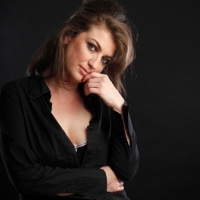 2018), The Voyeur (Sinful Press, 2018), Knowing Her Place-Book 3: The Perfect Submissive Trilogy, (KJBooks, 2018), The Retreat- Book2: The Perfect Submissive Trilogy(KJBooks, 2018), Making Him Wait (Sinful Press, 2018), The Fifth Floor- Book1; The Perfect Submissive Trilogy (KJBooks, 2017), Wednesday on Thursday, (KDP, 2017), The Collector (KDP, 2016), A Sticky Situation (Xcite, 2013), Digging Deep, (Xcite 2013), Take Control, (1001 NightsPress, 2014), and Not Her Type (1001 NightsPress), 2013.
2018), The Voyeur (Sinful Press, 2018), Knowing Her Place-Book 3: The Perfect Submissive Trilogy, (KJBooks, 2018), The Retreat- Book2: The Perfect Submissive Trilogy(KJBooks, 2018), Making Him Wait (Sinful Press, 2018), The Fifth Floor- Book1; The Perfect Submissive Trilogy (KJBooks, 2017), Wednesday on Thursday, (KDP, 2017), The Collector (KDP, 2016), A Sticky Situation (Xcite, 2013), Digging Deep, (Xcite 2013), Take Control, (1001 NightsPress, 2014), and Not Her Type (1001 NightsPress), 2013.


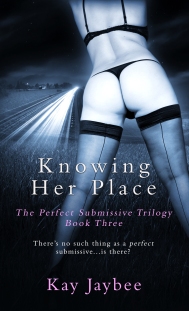 Kay tells us, “If you want to know what kinky service Jess provides for Harry (and kinky is underselling it to be honest), then all is revealed within the final part of this fast paced BDSM trilogy.”
Kay tells us, “If you want to know what kinky service Jess provides for Harry (and kinky is underselling it to be honest), then all is revealed within the final part of this fast paced BDSM trilogy.”

 protagonists’ comfort zones (and, thereby, those of the reader).
protagonists’ comfort zones (and, thereby, those of the reader). Lady Tia wafted into Elena’s study in a haze of musky perfume. As she clicked on her screensaver, the Scotswoman peered at her assistant over the rim of her glasses. ‘Good evening, Lady Tia. Thank you for coming so promptly.’
Lady Tia wafted into Elena’s study in a haze of musky perfume. As she clicked on her screensaver, the Scotswoman peered at her assistant over the rim of her glasses. ‘Good evening, Lady Tia. Thank you for coming so promptly.’ Kay Jaybee has over 180 erotica publications including, The Retreat- Book2: The Perfect Submissive Trilogy (KJBooks, 2018), Making Him Wait (Sinful Press, 2018), The Fifth Floor- Book1;The Perfect Submissive Trilogy (KJBooks, 2017), Wednesday on Thursday, (KDP, 2017), The Collector (KDP, 2016), A Sticky Situation (Xcite, 2013), Digging Deep, (Xcite 2013), Take Control, (1001 NightsPress, 2014), and Not Her Type (1001 NightsPress), 2013.
Kay Jaybee has over 180 erotica publications including, The Retreat- Book2: The Perfect Submissive Trilogy (KJBooks, 2018), Making Him Wait (Sinful Press, 2018), The Fifth Floor- Book1;The Perfect Submissive Trilogy (KJBooks, 2017), Wednesday on Thursday, (KDP, 2017), The Collector (KDP, 2016), A Sticky Situation (Xcite, 2013), Digging Deep, (Xcite 2013), Take Control, (1001 NightsPress, 2014), and Not Her Type (1001 NightsPress), 2013.
 “I found that my storytelling always turned to erotic themes, and felt ashamed to be writing “dirty stories.” Serendipitously, at that time I came upon a trio of inspiring books: The Mammoth Book of International Erotica, edited by Maxim Jakubowski; Best American Erotica 1997, edited by Susie Bright, and Diane di Prima’s Memoirs of a Beatnik. These books showed me that erotica can be intelligent, challenging and mind-expanding, exciting to the mind as well as to the libido. Di Prima’s contention that “there are as many kinds of kisses as there are people on the earth” and her brilliant description of several kissing styles still amazes and challenges me to capture the truth of the erotic experience in my own work. I must add, however, that it’s only the first two chapters of Memoirs of a Beatnik that I liked—the chapters about her affair with Ivan that had plenty of romance and emotion. After that, the book devolves into what it apparently was—stories written for the rent money for a pornographic press. The difference between the two sections was instructive to me. I adore sex stories with some sense of attraction beyond the physical, but am impatient with formulaic writing. Di Prima did actually have an affair with a man like Ivan. I’m not saying all writing is autobiographical in the strictest sense, but that section felt very real. That’s what I aspire to in my writing.”
“I found that my storytelling always turned to erotic themes, and felt ashamed to be writing “dirty stories.” Serendipitously, at that time I came upon a trio of inspiring books: The Mammoth Book of International Erotica, edited by Maxim Jakubowski; Best American Erotica 1997, edited by Susie Bright, and Diane di Prima’s Memoirs of a Beatnik. These books showed me that erotica can be intelligent, challenging and mind-expanding, exciting to the mind as well as to the libido. Di Prima’s contention that “there are as many kinds of kisses as there are people on the earth” and her brilliant description of several kissing styles still amazes and challenges me to capture the truth of the erotic experience in my own work. I must add, however, that it’s only the first two chapters of Memoirs of a Beatnik that I liked—the chapters about her affair with Ivan that had plenty of romance and emotion. After that, the book devolves into what it apparently was—stories written for the rent money for a pornographic press. The difference between the two sections was instructive to me. I adore sex stories with some sense of attraction beyond the physical, but am impatient with formulaic writing. Di Prima did actually have an affair with a man like Ivan. I’m not saying all writing is autobiographical in the strictest sense, but that section felt very real. That’s what I aspire to in my writing.” On the subject of film, Donna views it as the ‘premier storytelling form of our age’, alongside television. “When my not-so-mainstream novel Amorous Woman was published, a lot of people asked when the movie version was coming out. Not that they were totally serious, but a movie adaptation is the mark of an “important” work of fiction. I’m impressed by the collaborative nature of making a movie; it’s not just one person’s vision. A successful film requires so many different levels of artistry and co-operation. That helps me appreciate how a published work also involves various levels of dedication—editing, publishing, marketing, reaching the reader. Also, I’ve found “how to write screenplays” books more helpful for my fiction than how-to’s aimed at fiction writers. Robert McKee’s Story is an equally useful guide to writing a good novel. The focus on the structure of the story is particularly helpful, as I can sometimes get lost in the words when I’m writing.”
On the subject of film, Donna views it as the ‘premier storytelling form of our age’, alongside television. “When my not-so-mainstream novel Amorous Woman was published, a lot of people asked when the movie version was coming out. Not that they were totally serious, but a movie adaptation is the mark of an “important” work of fiction. I’m impressed by the collaborative nature of making a movie; it’s not just one person’s vision. A successful film requires so many different levels of artistry and co-operation. That helps me appreciate how a published work also involves various levels of dedication—editing, publishing, marketing, reaching the reader. Also, I’ve found “how to write screenplays” books more helpful for my fiction than how-to’s aimed at fiction writers. Robert McKee’s Story is an equally useful guide to writing a good novel. The focus on the structure of the story is particularly helpful, as I can sometimes get lost in the words when I’m writing.”


 before and really liked it, but the acting in this particular stage version was excellent, giving me a new understanding of the power of dialogue in advancing a story. I’ve long been aware that dialogue tends to be the most arousing element in an erotic story. I try to step back and listen to my characters speaking to each other, as if I’m watching a play. So, the theatrical experience is an important part of my writing.”
before and really liked it, but the acting in this particular stage version was excellent, giving me a new understanding of the power of dialogue in advancing a story. I’ve long been aware that dialogue tends to be the most arousing element in an erotic story. I try to step back and listen to my characters speaking to each other, as if I’m watching a play. So, the theatrical experience is an important part of my writing.”
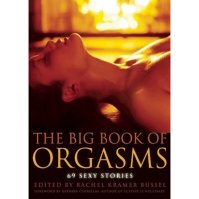 of a lark.”
of a lark.” the writing process,” Malin asserts. “As for what I’d like people to come away with…empathy I suppose. Or resonance. A sense of understanding — feeling understood and, more importantly, gaining an understanding of situations or people who may fall outside their realm of personal experience. My stories should feel like slices of other people’s lives that the reader can experience in some way.”
the writing process,” Malin asserts. “As for what I’d like people to come away with…empathy I suppose. Or resonance. A sense of understanding — feeling understood and, more importantly, gaining an understanding of situations or people who may fall outside their realm of personal experience. My stories should feel like slices of other people’s lives that the reader can experience in some way.” Sarah Waters, Jeanette Winterson, Anais Nin — explore what it is to live, love, hate, and hurt, and they do so beautifully (and arousingly) with sex. They’re an intersection between the literary and erotic,” asserts Malin. “Their exploration of sexual themes occurs with fearlessness and frankness; it’s the lack of implied apology that appeals most to me.”
Sarah Waters, Jeanette Winterson, Anais Nin — explore what it is to live, love, hate, and hurt, and they do so beautifully (and arousingly) with sex. They’re an intersection between the literary and erotic,” asserts Malin. “Their exploration of sexual themes occurs with fearlessness and frankness; it’s the lack of implied apology that appeals most to me.” She adds, “The Magic Toyshop and The Bloody Chamber, by Angela Carter, have made me aware of my sexuality in a much more complicated way, while Muriel Spark’s The Driver’s Seat has opened my eyes to my own lack of sentimentality, just as Affinity, by Sarah Waters, has made me aware of how deeply my empathy runs. Angela Carter’s emphasis on sexuality as mundane, profane
She adds, “The Magic Toyshop and The Bloody Chamber, by Angela Carter, have made me aware of my sexuality in a much more complicated way, while Muriel Spark’s The Driver’s Seat has opened my eyes to my own lack of sentimentality, just as Affinity, by Sarah Waters, has made me aware of how deeply my empathy runs. Angela Carter’s emphasis on sexuality as mundane, profane  and transcendent has definitely influenced my storytelling. Muriel Spark’s work has given me permission to be unflinching and unapologetic with my characters, and Sarah Waters has taught me to pay attention to physical and emotional details, which are often more telling than paragraphs of exposition.”
and transcendent has definitely influenced my storytelling. Muriel Spark’s work has given me permission to be unflinching and unapologetic with my characters, and Sarah Waters has taught me to pay attention to physical and emotional details, which are often more telling than paragraphs of exposition.” England). She underlines, “My acting training (as well as the critical training I received during my MA) directly influences my writing in many subtle ways: particularly in how I approach characters and the circumstances that inform the narrative arc. I think of writing in terms of lenses and angles—sex is, very often the lens, but the angle is determined by influences, from things I’ve done and read.”
England). She underlines, “My acting training (as well as the critical training I received during my MA) directly influences my writing in many subtle ways: particularly in how I approach characters and the circumstances that inform the narrative arc. I think of writing in terms of lenses and angles—sex is, very often the lens, but the angle is determined by influences, from things I’ve done and read.” published by Go Deeper Press. Malin also names David Ives’ Venus in Fur, for its ‘cleverly subversive viciousness’ and Prelude to a Kiss, for its ‘use of magical realism to examine a woman’s fear of death’.
published by Go Deeper Press. Malin also names David Ives’ Venus in Fur, for its ‘cleverly subversive viciousness’ and Prelude to a Kiss, for its ‘use of magical realism to examine a woman’s fear of death’. than plot. She names The English Patient, Bram Stoker’s Dracula (directed Francis Ford Coppola) and Gilda (starring Rita Hayworth) as influential films for her writing, as well as Hitchcock’s Rear Window, Shadow of a Doubt and Vertigo. “While they’re all very different, there’s something compelling in their emotional landscape: a tension and melancholic tragedy. That said, one of my favorite movies of all time is Clue; I love the ridiculous humor of it.”
than plot. She names The English Patient, Bram Stoker’s Dracula (directed Francis Ford Coppola) and Gilda (starring Rita Hayworth) as influential films for her writing, as well as Hitchcock’s Rear Window, Shadow of a Doubt and Vertigo. “While they’re all very different, there’s something compelling in their emotional landscape: a tension and melancholic tragedy. That said, one of my favorite movies of all time is Clue; I love the ridiculous humor of it.”




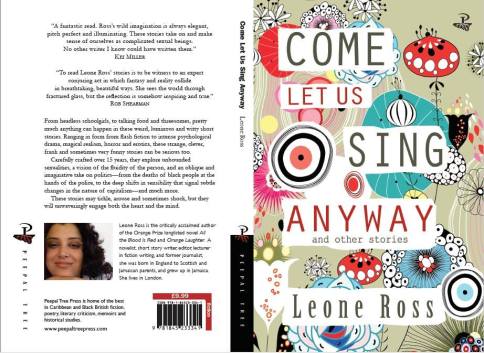




 Music is a huge influence in Tabitha’s work. She reveals, “If I want to feel horny, to get in the mood for a big fuck scene, I put on Whole Lotta Love by Led Zepplin. God, that is a sexy song. Honestly, I could go on for hours about music. I go to see bands and concerts a lot and get so fired up. No musical genre is excluded, from country to classical, rap to rock, folk to jazz, dubstep and drum n bass – I love it all.”
Music is a huge influence in Tabitha’s work. She reveals, “If I want to feel horny, to get in the mood for a big fuck scene, I put on Whole Lotta Love by Led Zepplin. God, that is a sexy song. Honestly, I could go on for hours about music. I go to see bands and concerts a lot and get so fired up. No musical genre is excluded, from country to classical, rap to rock, folk to jazz, dubstep and drum n bass – I love it all.”
 Speaking of her literary influences, Tabitha tells us, “Toni Morrison changed me. She was the first writer, for me, to have sensuality woven throughout every sentence – making it a rich part of her work, rather than a separate thing. In my own writing, I try to keep all things sensual. Not just when I’m writing a sex scene. I like the whole piece to have an air of arousal, of something impending.”
Speaking of her literary influences, Tabitha tells us, “Toni Morrison changed me. She was the first writer, for me, to have sensuality woven throughout every sentence – making it a rich part of her work, rather than a separate thing. In my own writing, I try to keep all things sensual. Not just when I’m writing a sex scene. I like the whole piece to have an air of arousal, of something impending.”
 She has also drawn up plans for a perpetual energy machine using inverted pendulums, and is in the process of designing a hamster wheel: ‘it will be better for their little backs and smoother, for less nocturnal noise annoyance… yes, I have a noisy hamster’.
She has also drawn up plans for a perpetual energy machine using inverted pendulums, and is in the process of designing a hamster wheel: ‘it will be better for their little backs and smoother, for less nocturnal noise annoyance… yes, I have a noisy hamster’. Find a full list of Tabitha’s books
Find a full list of Tabitha’s books 














 Kay recalls Cassandra’s Conflict, by Frederica Allen, as her introduction to the world of BDSM/S&M literature. She remembers, “It made me realise that you could read about pushing sexual boundaries, taking pleasure from reading, without entering that world yourself.” It was another decade before she put pen to paper, but Kay believes this book had greater influence than she initially realised.
Kay recalls Cassandra’s Conflict, by Frederica Allen, as her introduction to the world of BDSM/S&M literature. She remembers, “It made me realise that you could read about pushing sexual boundaries, taking pleasure from reading, without entering that world yourself.” It was another decade before she put pen to paper, but Kay believes this book had greater influence than she initially realised.
 Of her most recent work of erotica, Wednesday on Thursday, Kay says, “I’m fascinated by words. Their origins, the way we use them and the power they have. What could happen, I wondered, if someone became obsessed with how individuals react to certain words when used in certain situations? Certain erotic situations…”
Of her most recent work of erotica, Wednesday on Thursday, Kay says, “I’m fascinated by words. Their origins, the way we use them and the power they have. What could happen, I wondered, if someone became obsessed with how individuals react to certain words when used in certain situations? Certain erotic situations…”


 Much later, LN read Roquelaure’s Sleeping Beauty trilogy, then Réage’s Story of O, Antoniou’s Marketplace series and Weatherfield’s Carrie novels. LN explains, “Although the styles (and intentions) of these four women authors differ radically, they each have a definite sense of erotic cruelty—consensual, yes, but often ‘consensual non-consent’. It’s about how the characters deal with the system they’ve agreed to enter. There is love, or something like it, in these books, but desire, and the drive to keep going, to keep pushing oneself, is the bigger theme.”
Much later, LN read Roquelaure’s Sleeping Beauty trilogy, then Réage’s Story of O, Antoniou’s Marketplace series and Weatherfield’s Carrie novels. LN explains, “Although the styles (and intentions) of these four women authors differ radically, they each have a definite sense of erotic cruelty—consensual, yes, but often ‘consensual non-consent’. It’s about how the characters deal with the system they’ve agreed to enter. There is love, or something like it, in these books, but desire, and the drive to keep going, to keep pushing oneself, is the bigger theme.” porn’),” says LN, “They’re full of wealthy people, and take place in worldwide organizations that trade and train voluntary sex slaves, or variants thereof: Roquelaure’s world is a conquering castle; Réage’s a more local wealthy club. We follow entry into a whole new world, not just a new relationship.”
porn’),” says LN, “They’re full of wealthy people, and take place in worldwide organizations that trade and train voluntary sex slaves, or variants thereof: Roquelaure’s world is a conquering castle; Réage’s a more local wealthy club. We follow entry into a whole new world, not just a new relationship.” “A woman is seen busily cleaning her sleek Modernist house, in preparation for a dinner party,” LN explains. “The guests all show up, two couples, and I remember thinking it was a little odd that she was the fifth wheel in this; she had no partner. They all look around, so impressed with her house and the food, but, being an air freshener commercial, they start to sniff the air, and we see the dog on the sofa and the fish frying, and then they all look at her, very disapprovingly. She sort of hangs her head in shame. And every time I saw it I felt this wonderful little tension, because it was obvious, to me at least, that she was going to have to be punished…by the guests!”
“A woman is seen busily cleaning her sleek Modernist house, in preparation for a dinner party,” LN explains. “The guests all show up, two couples, and I remember thinking it was a little odd that she was the fifth wheel in this; she had no partner. They all look around, so impressed with her house and the food, but, being an air freshener commercial, they start to sniff the air, and we see the dog on the sofa and the fish frying, and then they all look at her, very disapprovingly. She sort of hangs her head in shame. And every time I saw it I felt this wonderful little tension, because it was obvious, to me at least, that she was going to have to be punished…by the guests!”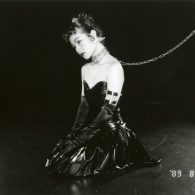

 immerse the reader. “So much erotica seems to lacks detail until the sex scenes,” LN regrets, ‘As if they’re taking place on an empty stage with no setting.”
immerse the reader. “So much erotica seems to lacks detail until the sex scenes,” LN regrets, ‘As if they’re taking place on an empty stage with no setting.” Read my review of LN Bey’s Blue
Read my review of LN Bey’s Blue 
 to the inherent illogicality of BDSM — as LN puts it ‘the desire to be beaten, controlled and humiliated (or to do the beating) despite it making no logical sense’.
to the inherent illogicality of BDSM — as LN puts it ‘the desire to be beaten, controlled and humiliated (or to do the beating) despite it making no logical sense’.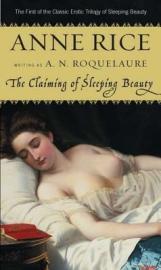 As LN explains, “In Story of O, in the Beauty trilogy, and in The Marketplace, the subs are there to serve and to lose themselves, not to be coddled before and after a spanking. It’s assumed that Masters are entitled to their slaves’ submission, and that’s what the submissives expect, and want, as well.”
As LN explains, “In Story of O, in the Beauty trilogy, and in The Marketplace, the subs are there to serve and to lose themselves, not to be coddled before and after a spanking. It’s assumed that Masters are entitled to their slaves’ submission, and that’s what the submissives expect, and want, as well.” Unlike Story of O and the worlds of Antoniou, Weatherfield and Roquelaure, there are no castles or billionaire mansions in Blue, which is set in the blandest of American suburbs, where our cast of kinky suburbanites, each flawed and ego-centric, have day jobs, shop in supermarkets and battle traffic jams.
Unlike Story of O and the worlds of Antoniou, Weatherfield and Roquelaure, there are no castles or billionaire mansions in Blue, which is set in the blandest of American suburbs, where our cast of kinky suburbanites, each flawed and ego-centric, have day jobs, shop in supermarkets and battle traffic jams. Blue references erotic art and fiction, creating a nod to the reader, in their role as ‘connoisseur’: we recognize ourselves in these characters who read erotica, peruse erotic art works, and indulge in sexual fantasy. Janet, the leading protagonist, begins her journey in just this way, with a collection of well-thumbed novels of ‘erotic peril’ and some coffee-table books of provocative images.
Blue references erotic art and fiction, creating a nod to the reader, in their role as ‘connoisseur’: we recognize ourselves in these characters who read erotica, peruse erotic art works, and indulge in sexual fantasy. Janet, the leading protagonist, begins her journey in just this way, with a collection of well-thumbed novels of ‘erotic peril’ and some coffee-table books of provocative images. In parallel, Carolyn, a dominant seemingly in control of everything around her, struggles to control her own emotions. LN tells us, “I modelled Carolyn’s crisis on the HAL 9000 character from Stanley Kubrick’s 2001: A Space Odyssey. An artificial intelligence-level computer, HAL was faced with two contradictory missions; unable to cope with conflicting impulses, as in Carolyn’s case, all hell broke loose.”
In parallel, Carolyn, a dominant seemingly in control of everything around her, struggles to control her own emotions. LN tells us, “I modelled Carolyn’s crisis on the HAL 9000 character from Stanley Kubrick’s 2001: A Space Odyssey. An artificial intelligence-level computer, HAL was faced with two contradictory missions; unable to cope with conflicting impulses, as in Carolyn’s case, all hell broke loose.” tension is heightened, since we, like Janet, have no idea what will happen next. Speaking of the inspiration behind these scenes, LN references director Kubrick’s ‘lingering’ shots and wide angles, and his tendency to shoot people as he would objects, examining them in minute detail.
tension is heightened, since we, like Janet, have no idea what will happen next. Speaking of the inspiration behind these scenes, LN references director Kubrick’s ‘lingering’ shots and wide angles, and his tendency to shoot people as he would objects, examining them in minute detail. ordinary suburban dinner party. Recently divorced and looking for something new, Janet definitely finds it when her friend Jon invites her to join an exclusive club of kinksters whose initiation is to be the host—and the entertainment.
ordinary suburban dinner party. Recently divorced and looking for something new, Janet definitely finds it when her friend Jon invites her to join an exclusive club of kinksters whose initiation is to be the host—and the entertainment.

 Janine also names Angela Carter’s Bloody Chamber as an influence on her own short stories, for style and erotic/fairytale subject matter.
Janine also names Angela Carter’s Bloody Chamber as an influence on her own short stories, for style and erotic/fairytale subject matter.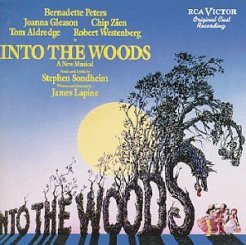 as have Sondheim’s lyrics, which move and inspire her, being ‘clever and emotionally complex’. She enjoys musicals at the tragic end of the spectrum: Cabaret and Jesus Christ Superstar, and Sondheim’s Into the Woods.
as have Sondheim’s lyrics, which move and inspire her, being ‘clever and emotionally complex’. She enjoys musicals at the tragic end of the spectrum: Cabaret and Jesus Christ Superstar, and Sondheim’s Into the Woods.
 When Milja Petak released the fallen angel Azazel from five thousand years of imprisonment, she did it out of love and pity. She found herself in a passionate sexual relationship beyond her imagining and control – the beloved plaything of a dark and furious demon who takes what he wants, when he wants, and submits to no restraint. But what she hasn’t bargained on is being drawn into his plan to free all his incarcerated brothers and wage a war against the Powers of Heaven.
When Milja Petak released the fallen angel Azazel from five thousand years of imprisonment, she did it out of love and pity. She found herself in a passionate sexual relationship beyond her imagining and control – the beloved plaything of a dark and furious demon who takes what he wants, when he wants, and submits to no restraint. But what she hasn’t bargained on is being drawn into his plan to free all his incarcerated brothers and wage a war against the Powers of Heaven. imprison Azazel for all eternity.
imprison Azazel for all eternity. You may like to visit Janine’s
You may like to visit Janine’s 






 Struggling writer, Kelly Blake has a secret life as a sex tutor. Celebrated sculptor and recluse, Alexander ‘Lex’ Valentine, can’t stand to be touched. When he seeks out Kelly’s advice incognito, the results are too hot to handle. When Kelly terminates their sessions due to what she considers to be her unprofessional behavior, Lex takes a huge risk, revealing his identity to her at a gala exhibition, his first ever public appearance. When Kelly helps the severely haphephobic Lex escape the grope of reporters and paparazzi, rumors fly that the two are engaged, rumors encouraged by well-meaning friends and colleagues. The press feeding frenzy forces Kelly into hiding at Lex’s mansion where he convinces her to be his private tutor just until the press loses interest, and she can go back home. They discover quickly that touch is not essential for sizzling, pulse-pounding intimacy. But intimacy must survive secrets uncovered, as their sessions become more and more personal.
Struggling writer, Kelly Blake has a secret life as a sex tutor. Celebrated sculptor and recluse, Alexander ‘Lex’ Valentine, can’t stand to be touched. When he seeks out Kelly’s advice incognito, the results are too hot to handle. When Kelly terminates their sessions due to what she considers to be her unprofessional behavior, Lex takes a huge risk, revealing his identity to her at a gala exhibition, his first ever public appearance. When Kelly helps the severely haphephobic Lex escape the grope of reporters and paparazzi, rumors fly that the two are engaged, rumors encouraged by well-meaning friends and colleagues. The press feeding frenzy forces Kelly into hiding at Lex’s mansion where he convinces her to be his private tutor just until the press loses interest, and she can go back home. They discover quickly that touch is not essential for sizzling, pulse-pounding intimacy. But intimacy must survive secrets uncovered, as their sessions become more and more personal. touching. From well-detailed interactions to the steamy interludes, this is a story that is blazing hot.” 5 out of 5,
touching. From well-detailed interactions to the steamy interludes, this is a story that is blazing hot.” 5 out of 5, 

 Among her favourite such reads is David Schickler’s Kissing In Manhattan collection, which gives readers a ‘strange and seemingly random cast of characters, centred on a mythic Manhattan apartment complex called The Preemption’.
Among her favourite such reads is David Schickler’s Kissing In Manhattan collection, which gives readers a ‘strange and seemingly random cast of characters, centred on a mythic Manhattan apartment complex called The Preemption’. has ever seen before but, if they go too far or are overdone, the film falls flat. For me, kink scenes follow the same logic. I want my sexy story bits to be steamy and hot, but I want to be sure that they’re still grounded in something real. Do body parts actually move and react that way? Is proper safety, negotiation, and consent being observed? Does the kink serve a purpose to the plot and character development or is it more flash over substance?”
has ever seen before but, if they go too far or are overdone, the film falls flat. For me, kink scenes follow the same logic. I want my sexy story bits to be steamy and hot, but I want to be sure that they’re still grounded in something real. Do body parts actually move and react that way? Is proper safety, negotiation, and consent being observed? Does the kink serve a purpose to the plot and character development or is it more flash over substance?”



 About the author
About the author


 and is currently at work on a novel The Seven Seductions. His work explores the thoughts, feelings and emotions that accompany the erotic experience.
and is currently at work on a novel The Seven Seductions. His work explores the thoughts, feelings and emotions that accompany the erotic experience.


 human condition through the lens of the erotic. See my review
human condition through the lens of the erotic. See my review  Another of his short story collections is
Another of his short story collections is 
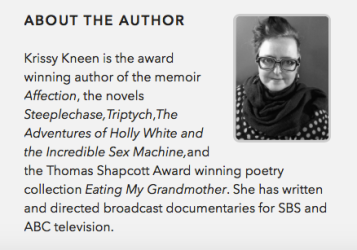
 Krissy explains that her love of literature began when her grandmother would pay her 20c for reading and reviewing books. She adds, “I moved on from stories about mice to Moomintroll, and by the time I hit Ray Bradbury I no longer needed the money. The books themselves became the reward. I started to write because books like R is for Rocket and S is for Space by Bradbury left so much space for me as a reader that I needed to add to the dialogue.”
Krissy explains that her love of literature began when her grandmother would pay her 20c for reading and reviewing books. She adds, “I moved on from stories about mice to Moomintroll, and by the time I hit Ray Bradbury I no longer needed the money. The books themselves became the reward. I started to write because books like R is for Rocket and S is for Space by Bradbury left so much space for me as a reader that I needed to add to the dialogue.” It comes as no surprise that art has inspired Krissy’s work. Her family are visual artists and, as well as designing the sets for a couple of theatre shows in her youth, she enjoyed her own art exhibition. Her Triptych comprises three conjoined novellas, each named after, and referencing, well-known paintings: The Dream of the Fisherman’s Wife, by Katsushika Hokusai; Susanna and the Elders, by Artemesia Gentileshi, and Romulus and Remus, by Peter Paul Rubens. Krissy stresses, “I can’t seem to write anything without the inspiration of the visual arts.” An Uncertain Grace is inspired by a photo created by Sebastio Salgado, which holds a central position in her narrative.
It comes as no surprise that art has inspired Krissy’s work. Her family are visual artists and, as well as designing the sets for a couple of theatre shows in her youth, she enjoyed her own art exhibition. Her Triptych comprises three conjoined novellas, each named after, and referencing, well-known paintings: The Dream of the Fisherman’s Wife, by Katsushika Hokusai; Susanna and the Elders, by Artemesia Gentileshi, and Romulus and Remus, by Peter Paul Rubens. Krissy stresses, “I can’t seem to write anything without the inspiration of the visual arts.” An Uncertain Grace is inspired by a photo created by Sebastio Salgado, which holds a central position in her narrative. best and worst selves, our innermost selves—and who we might become.
best and worst selves, our innermost selves—and who we might become.
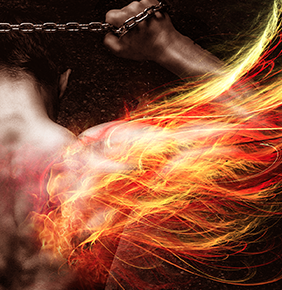
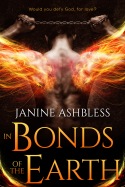 the Watchers trilogy: In Bonds of the Earth. It’s a thought-provoking and immersive novel, setting new standards for paranormal erotic romance. Janine’s authorial style is unforgettable. She likes to write about magic, myth and mystery, dangerous power dynamics, borderline terror, and the not-quite-human. She takes exciting risks in her storytelling; she’s innovative, and she brings fierce intelligence to all she writes.
the Watchers trilogy: In Bonds of the Earth. It’s a thought-provoking and immersive novel, setting new standards for paranormal erotic romance. Janine’s authorial style is unforgettable. She likes to write about magic, myth and mystery, dangerous power dynamics, borderline terror, and the not-quite-human. She takes exciting risks in her storytelling; she’s innovative, and she brings fierce intelligence to all she writes. 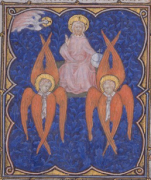 “Stretching up into the great vertical space of the tower, they had become a living helix of light—a caduceus coiled about the pillar of the world. I thought of all the legends from across the Earth. I thought of the Garden of Eden and the Great Dragon of Saint John’s Revelation; stories bookending the whole of human history.
“Stretching up into the great vertical space of the tower, they had become a living helix of light—a caduceus coiled about the pillar of the world. I thought of all the legends from across the Earth. I thought of the Garden of Eden and the Great Dragon of Saint John’s Revelation; stories bookending the whole of human history.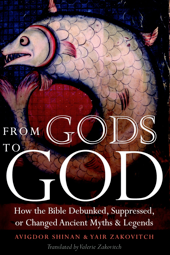 with hands (remember that the Serpent of Eden is punished by being made to crawl in the dust, strongly suggested that it previously had other forms of locomotion).
with hands (remember that the Serpent of Eden is punished by being made to crawl in the dust, strongly suggested that it previously had other forms of locomotion).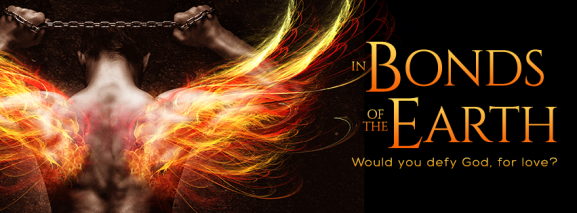
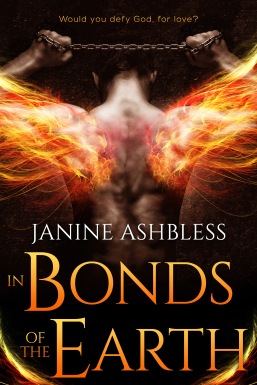 “Broad at the shoulders and lean at the hips, six foot-and-then-something of ropey muscle, he looks like a Spartan god who got lost in a thrift store. He moves like ink through water. And his eyes, when you get a good look at them, are silver. Not gray. Silver. You might take their inhuman shine for fancy contact lenses. You’d be wrong.” – In Bonds of the Earth
“Broad at the shoulders and lean at the hips, six foot-and-then-something of ropey muscle, he looks like a Spartan god who got lost in a thrift store. He moves like ink through water. And his eyes, when you get a good look at them, are silver. Not gray. Silver. You might take their inhuman shine for fancy contact lenses. You’d be wrong.” – In Bonds of the Earth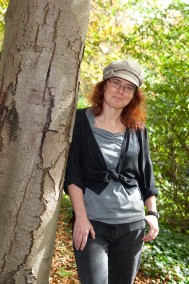








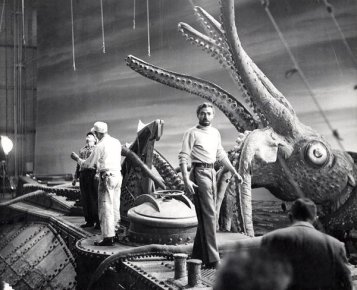

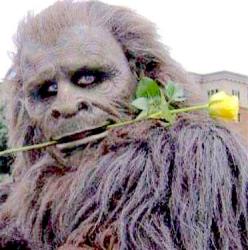













 Our psyche comprises contradictory elements. Linnea, we are told, is ‘an alloy’, stronger than the metals from which she is made. A powerful metaphor in the story is given through Linnea’s sculptures, which comprise contrasting, yet harmonising materials: hickory and chestnut or oak and walnut. They symbolize Linnea’s inner being. ‘There are three tiny knots… clustered like moles on a woman’s shoulder.’ This metaphor continues. ‘The twisting shapes hint at lovers entangled ankle to throat’, bound by fine steel wire, brass straps, clear glass bands, rough rope knotted. Linnea’s art is a visual representation of what she desires for herself: bondage and forced compliance. We are told that ‘wood fucks wood’ and that the scent is ‘musky, human’.
Our psyche comprises contradictory elements. Linnea, we are told, is ‘an alloy’, stronger than the metals from which she is made. A powerful metaphor in the story is given through Linnea’s sculptures, which comprise contrasting, yet harmonising materials: hickory and chestnut or oak and walnut. They symbolize Linnea’s inner being. ‘There are three tiny knots… clustered like moles on a woman’s shoulder.’ This metaphor continues. ‘The twisting shapes hint at lovers entangled ankle to throat’, bound by fine steel wire, brass straps, clear glass bands, rough rope knotted. Linnea’s art is a visual representation of what she desires for herself: bondage and forced compliance. We are told that ‘wood fucks wood’ and that the scent is ‘musky, human’. enclosure, I knew she would become obsessive about the walls: that she would make art from this constraint, as well.
enclosure, I knew she would become obsessive about the walls: that she would make art from this constraint, as well.  with interest. He is dropping into the strange, abstract space where she stops being entirely real to him, where he stops being real to himself: the no-place that is all places, and their bodies become geometries and his body and brain divide themselves into pieces simultaneously dissociative and entirely, pulsingly, engaged.’
with interest. He is dropping into the strange, abstract space where she stops being entirely real to him, where he stops being real to himself: the no-place that is all places, and their bodies become geometries and his body and brain divide themselves into pieces simultaneously dissociative and entirely, pulsingly, engaged.’ protagonists?
protagonists? outside spaces – looking inward and outward. Linnea struggles against Alex’s constraint of her freedom, but we come to see that her constraint is also internal. ‘She’s a coyote in a leg-hold trap, chewing at her own ankle.’ When she asks what he wants from her, he laughs, evading, ‘because the answer is love and he cannot admit that’. Linnea evades, as well. ‘It is not the house and enclosure that blocks honesty; their constraints travel with them.’
outside spaces – looking inward and outward. Linnea struggles against Alex’s constraint of her freedom, but we come to see that her constraint is also internal. ‘She’s a coyote in a leg-hold trap, chewing at her own ankle.’ When she asks what he wants from her, he laughs, evading, ‘because the answer is love and he cannot admit that’. Linnea evades, as well. ‘It is not the house and enclosure that blocks honesty; their constraints travel with them.’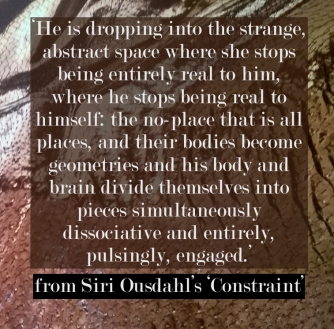 anyone. She resists, saying, “No one is anyone’s.” Later, taunted by dominatrix Klee, Linnea asserts, “I am not yours. I am no one’s.” Klee responds, “So sad. We all belong to someone…”
anyone. She resists, saying, “No one is anyone’s.” Later, taunted by dominatrix Klee, Linnea asserts, “I am not yours. I am no one’s.” Klee responds, “So sad. We all belong to someone…” will stay together as things are, but there’s a sequel I have thought about that starts six months from now, when Linnea has left Alex and ends up in Switzerland, using Klee, Berndt, Vadim (and others) to make sense of her experience. Can they return to one another after that? Depends on the next book.
will stay together as things are, but there’s a sequel I have thought about that starts six months from now, when Linnea has left Alex and ends up in Switzerland, using Klee, Berndt, Vadim (and others) to make sense of her experience. Can they return to one another after that? Depends on the next book. 
 I’m also researching an erotic fantasy novel! Yes, research: I can’t bring myself to write anything without lots and lots of reading ahead of time.
I’m also researching an erotic fantasy novel! Yes, research: I can’t bring myself to write anything without lots and lots of reading ahead of time. 
 I
I Always this dance, and writing has helped me embrace the totality in the supposed contradictions.’ – read more
Always this dance, and writing has helped me embrace the totality in the supposed contradictions.’ – read more  Others discovered the liberation of writing much later.
Others discovered the liberation of writing much later.





 Christina Mandara voices the opinion that women’s reading material is being dictated to them: a view shared by Sorcha Black, who believes, “The policing of women’s sexuality includes censoring what we read.”
Christina Mandara voices the opinion that women’s reading material is being dictated to them: a view shared by Sorcha Black, who believes, “The policing of women’s sexuality includes censoring what we read.” Remittance Girl, in her article,
Remittance Girl, in her article, 
 However, the majority of writers with the 130 authors survey assert a desire to write recognizable, diverse characters, and situations, with psychological depth, to better allow readers to empathize, and enter into alternate possibilities.
However, the majority of writers with the 130 authors survey assert a desire to write recognizable, diverse characters, and situations, with psychological depth, to better allow readers to empathize, and enter into alternate possibilities. (where the plot extends beyond the surprise reveal of them actually being a §transperson). She laments the ‘generic’ in erotic fiction.
(where the plot extends beyond the surprise reveal of them actually being a §transperson). She laments the ‘generic’ in erotic fiction. experience is fantastic even though you don’t know his/her name. The female version usually has the gorgeous partner falling in love for the first time in his life after the aforementioned great sex.” Donna asserts, “I’d like to see more celebration of the magic of sex between people who know each other well. I’d like to acknowledge that time and trust are important in creating a situation where great sex can happen. Couples who’ve been together for a long time are not necessarily bored with each other. They can go deeper, they can play, they know each other well enough to trust it will be mutually enjoyable.”
experience is fantastic even though you don’t know his/her name. The female version usually has the gorgeous partner falling in love for the first time in his life after the aforementioned great sex.” Donna asserts, “I’d like to see more celebration of the magic of sex between people who know each other well. I’d like to acknowledge that time and trust are important in creating a situation where great sex can happen. Couples who’ve been together for a long time are not necessarily bored with each other. They can go deeper, they can play, they know each other well enough to trust it will be mutually enjoyable.”  mistrust, fear and emotional wounding’ — shows characters obliged to ‘reconstruct their identity in the light of what they’ve done’ –more
mistrust, fear and emotional wounding’ — shows characters obliged to ‘reconstruct their identity in the light of what they’ve done’ –more 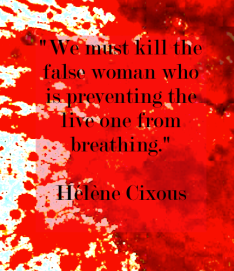 “I love exploring the slippery relationship between truth and fiction. The stories I value convey truths that spring from careful thought and deep feeling, truths we often keep secret from others and ourselves. Exploring those truths is what I aim for when I write.”
“I love exploring the slippery relationship between truth and fiction. The stories I value convey truths that spring from careful thought and deep feeling, truths we often keep secret from others and ourselves. Exploring those truths is what I aim for when I write.” She adds that the public versus private face of a person can exist not only in terms of their sexuality (how they express it to the world versus how they are in private) but their art form (dance, painting, sculpture, music, songwriting, writing, and so on).
She adds that the public versus private face of a person can exist not only in terms of their sexuality (how they express it to the world versus how they are in private) but their art form (dance, painting, sculpture, music, songwriting, writing, and so on). Themes: Mortality
Themes: Mortality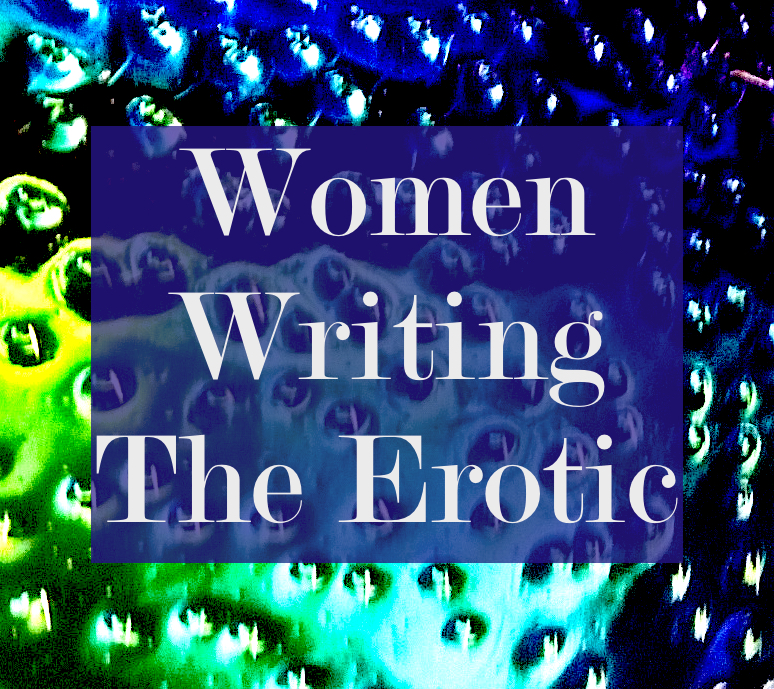
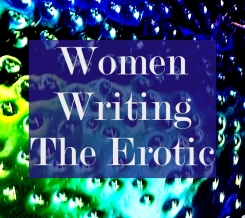
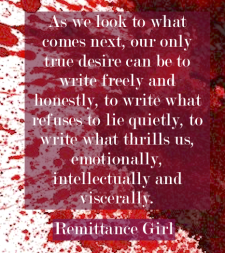 share of authors, and our voices are growing louder.
share of authors, and our voices are growing louder.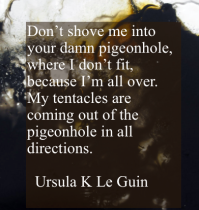 There’s still a degree of censorship, and traditional publishers remain somewhat cautious about stepping outside of the box, but, if we keep writing up against the boundaries, inch by inch, they will surely come down.
There’s still a degree of censorship, and traditional publishers remain somewhat cautious about stepping outside of the box, but, if we keep writing up against the boundaries, inch by inch, they will surely come down.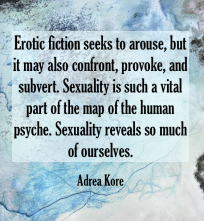
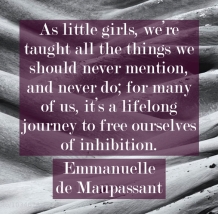 It’s true that some elements of the human condition are universal. We all, surely, know what it is to love, to despair, to smile, or to regret. We know the fragility of life and we share wonder in the world we inhabit.
It’s true that some elements of the human condition are universal. We all, surely, know what it is to love, to despair, to smile, or to regret. We know the fragility of life and we share wonder in the world we inhabit.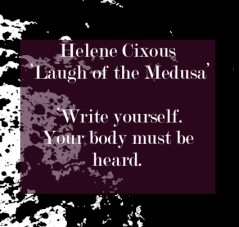 As Cecilia Tan states, “I was put on Earth to write but it wasn’t until I started writing erotic fiction that I found my voice. I want a world where sexual freedom, not sexual oppression, is the norm, and so I write about sexual pleasure and fulfillment.”
As Cecilia Tan states, “I was put on Earth to write but it wasn’t until I started writing erotic fiction that I found my voice. I want a world where sexual freedom, not sexual oppression, is the norm, and so I write about sexual pleasure and fulfillment.”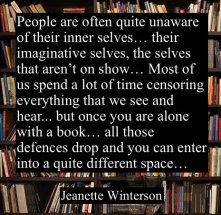 as well as a creative one’. She explains, “French feminist Helene Cixous phrased it beautifully in an essay called ‘Laugh of the Medusa’ – ‘Write yourself. Your body must be heard.’ I think this applies to all women’s stories, but particularly those around sexuality. The political aspect of it, the desire to confront and subvert, is a strong motivation for me – as strong as the desire to seduce and arouse.”
as well as a creative one’. She explains, “French feminist Helene Cixous phrased it beautifully in an essay called ‘Laugh of the Medusa’ – ‘Write yourself. Your body must be heard.’ I think this applies to all women’s stories, but particularly those around sexuality. The political aspect of it, the desire to confront and subvert, is a strong motivation for me – as strong as the desire to seduce and arouse.”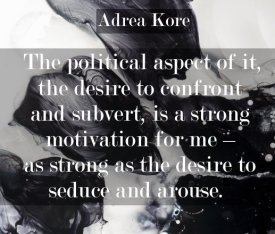 that some readers have criticized her writing of female protagonists who lack ‘the same moral compass’ as themselves. She notes, “I call these cardboard cut out heroines. From my personal experience, people make crazy decisions when it comes to love and passion.” She asserts that ‘flawed, impulsive, manipulative heroines’ breathe life into fiction.
that some readers have criticized her writing of female protagonists who lack ‘the same moral compass’ as themselves. She notes, “I call these cardboard cut out heroines. From my personal experience, people make crazy decisions when it comes to love and passion.” She asserts that ‘flawed, impulsive, manipulative heroines’ breathe life into fiction.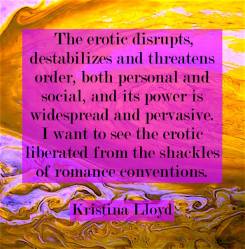 some authors mention a desire to explore the realm of non-consent.
some authors mention a desire to explore the realm of non-consent.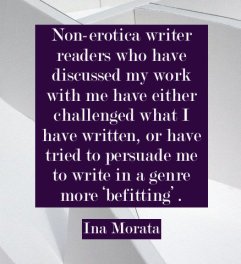 preoccupy myself with it as I write would be to stymie the story before it’s even formed. While I acknowledge the reality of censorship, I try not to let it, or fear of it, influence my writing. I serve the story. If it trips censors, so be it. I have the luxury of pulling it and sending it elsewhere.“
preoccupy myself with it as I write would be to stymie the story before it’s even formed. While I acknowledge the reality of censorship, I try not to let it, or fear of it, influence my writing. I serve the story. If it trips censors, so be it. I have the luxury of pulling it and sending it elsewhere.“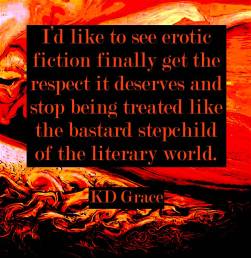 However, KD Grace stresses that this generates an attitude of ‘us against the world and circle the wagons’ and ‘a real sense of camaraderie among erotica writers (with little of the petty jealousy I’ve seen among writers in some other genres).’ She feels the erotica writing community as ‘a family’, saying, “That encouragement has meant a lot to me through the years.”
However, KD Grace stresses that this generates an attitude of ‘us against the world and circle the wagons’ and ‘a real sense of camaraderie among erotica writers (with little of the petty jealousy I’ve seen among writers in some other genres).’ She feels the erotica writing community as ‘a family’, saying, “That encouragement has meant a lot to me through the years.”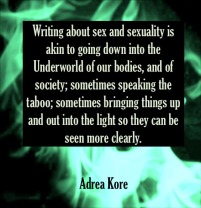 desire. I think it put light on the seed already in me to find new and evocative ways of writing about feminine desire and describing the desiring female body.”
desire. I think it put light on the seed already in me to find new and evocative ways of writing about feminine desire and describing the desiring female body.”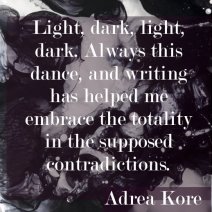 thing that truly inspires me to silence the inner critic and just write and enjoy the pleasure of speaking the unspeakable.”
thing that truly inspires me to silence the inner critic and just write and enjoy the pleasure of speaking the unspeakable.”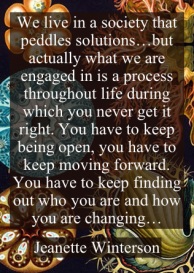 and our fears. We emerge changed and, as RG tells us, we ‘expose something true’ of ourselves (more
and our fears. We emerge changed and, as RG tells us, we ‘expose something true’ of ourselves (more 
 Rejecting typical notions of what constitutes ‘literary quality’, her own narrative voice is distinctly lyrical yet she also weaves a good tale. Ms. Learner is a story-teller.
Rejecting typical notions of what constitutes ‘literary quality’, her own narrative voice is distinctly lyrical yet she also weaves a good tale. Ms. Learner is a story-teller. the erotic gaze and the creative process.
the erotic gaze and the creative process. I lost my father when I was 16, while in the middle of studying King Lear for my O’ levels, so this play has particular emotional power for me. Various Shakespearian characters fascinate me: Ariel, Puck, Ophelia, King Lear (and his fool) and Falstaff (an incarnation of Bacchus really).
I lost my father when I was 16, while in the middle of studying King Lear for my O’ levels, so this play has particular emotional power for me. Various Shakespearian characters fascinate me: Ariel, Puck, Ophelia, King Lear (and his fool) and Falstaff (an incarnation of Bacchus really). I’m eclectic in my influences. Definitely, when I discover a new writer who has broken a rule, or who perhaps has an original onomatopoeia to her/his prose, it can be inspiring.
I’m eclectic in my influences. Definitely, when I discover a new writer who has broken a rule, or who perhaps has an original onomatopoeia to her/his prose, it can be inspiring. Are you influenced also by film?
Are you influenced also by film? 
 Tell us a little about your writing processes.
Tell us a little about your writing processes.
 Tobsha Learner
Tobsha Learner novels and dozens of plays. Her latest release is Picture This. Besides writing erotic fiction, she is known for her historical fiction, and for her thrillers (writing as
novels and dozens of plays. Her latest release is Picture This. Besides writing erotic fiction, she is known for her historical fiction, and for her thrillers (writing as  More about
More about 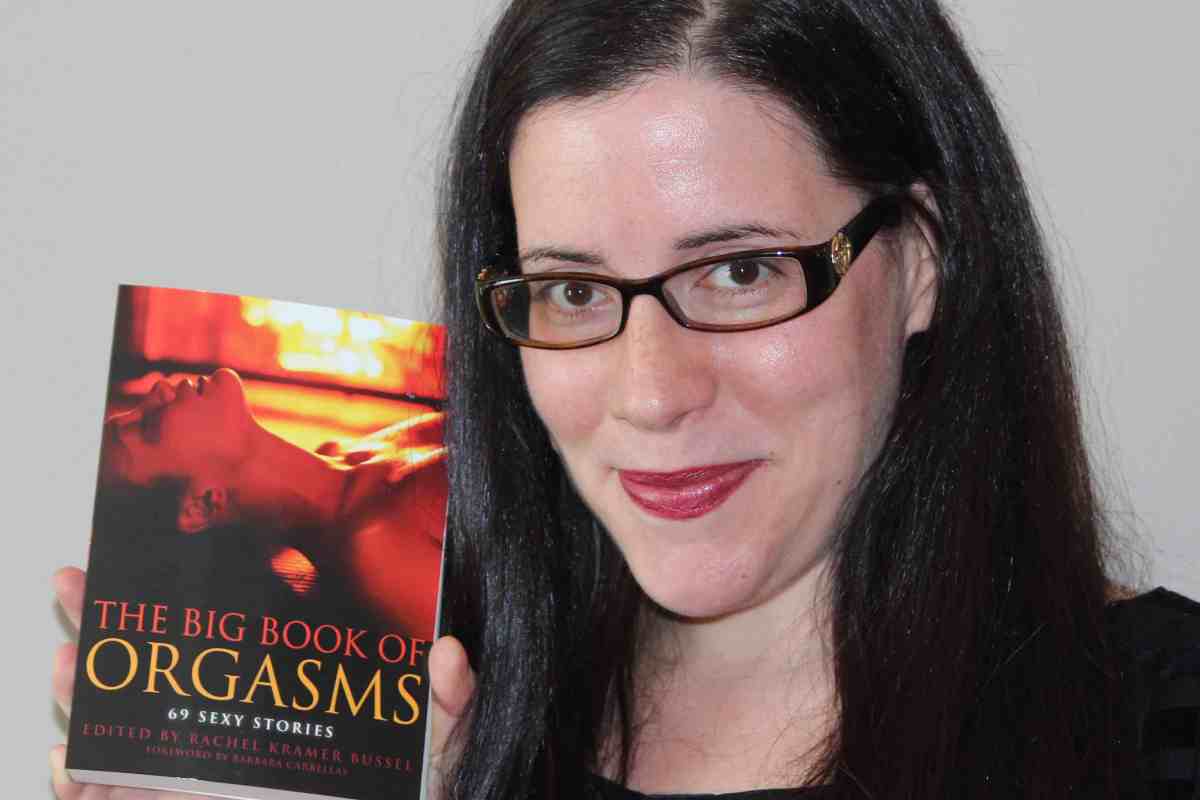
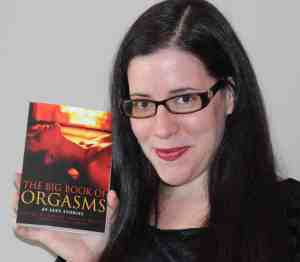
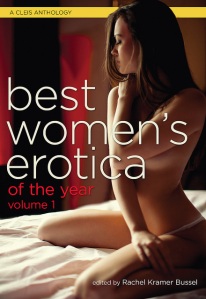
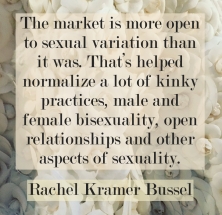
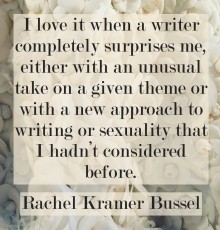
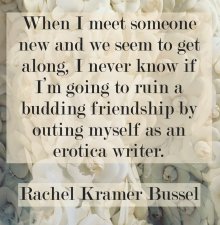
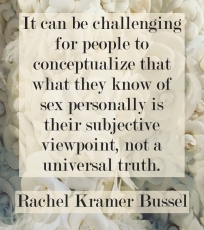
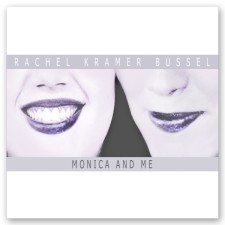
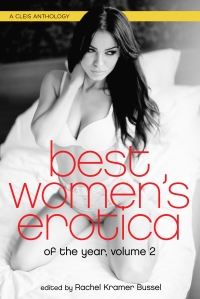



 As ever, Kemp’s storytelling goes beyond action and consequence, or the clever use of dialogue to reveal character, or the exploration of eternal themes. His talent lies in his use of language, probing words for their secrets, for their ‘blood-beat’, for their ability to reveal ‘meaning held within the contours of the skin’. He returns, again and again, to the inadequacy of language to express the erotic truths of the body, the ‘cannibal, animal hunger’ of desire.
As ever, Kemp’s storytelling goes beyond action and consequence, or the clever use of dialogue to reveal character, or the exploration of eternal themes. His talent lies in his use of language, probing words for their secrets, for their ‘blood-beat’, for their ability to reveal ‘meaning held within the contours of the skin’. He returns, again and again, to the inadequacy of language to express the erotic truths of the body, the ‘cannibal, animal hunger’ of desire.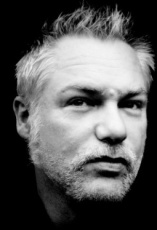


 minister Fleming, is clinical in its formality, in keeping with his social position. His life revolves around public service, and the care of his family and, at the heart of this seeming ‘order’ he is deeply unhappy.
minister Fleming, is clinical in its formality, in keeping with his social position. His life revolves around public service, and the care of his family and, at the heart of this seeming ‘order’ he is deeply unhappy. ‘… my life would have been lost in contemplation of the emerging skeleton beneath my skin. It was as though a man’s bones broke through the face of the werewolf. Shining with humanity he stalked through his midnight life towards the first day.’
‘… my life would have been lost in contemplation of the emerging skeleton beneath my skin. It was as though a man’s bones broke through the face of the werewolf. Shining with humanity he stalked through his midnight life towards the first day.’
 Juliette Binoche, directed by Louis Malle, in which we witness more of the sexual nature of the affair. In her book, Hart does not describe sex at length, and yet we are left in no doubt that the acts are intense.
Juliette Binoche, directed by Louis Malle, in which we witness more of the sexual nature of the affair. In her book, Hart does not describe sex at length, and yet we are left in no doubt that the acts are intense. angles that provoke the astounded primitive to leap delighted from the civilised skin…There would be time for words obscene and dangerous. There would be time for flowers to put out the eyes and for silken softness to close the ears.’
angles that provoke the astounded primitive to leap delighted from the civilised skin…There would be time for words obscene and dangerous. There would be time for flowers to put out the eyes and for silken softness to close the ears.’ attempting to apologize or make excuses. He is in the grip of what he knows will destroy him, and we abhor him for it. And yet, we see that he is powerless, just as Anna is powerless.
attempting to apologize or make excuses. He is in the grip of what he knows will destroy him, and we abhor him for it. And yet, we see that he is powerless, just as Anna is powerless. Josephine Hart achieves something rare in this novella: a helplessness that speaks deeply to the reader, a knowledge that, however sane and ordered our life, we carry our own destructive flame, the potential for our own acts of ‘damage’.
Josephine Hart achieves something rare in this novella: a helplessness that speaks deeply to the reader, a knowledge that, however sane and ordered our life, we carry our own destructive flame, the potential for our own acts of ‘damage’.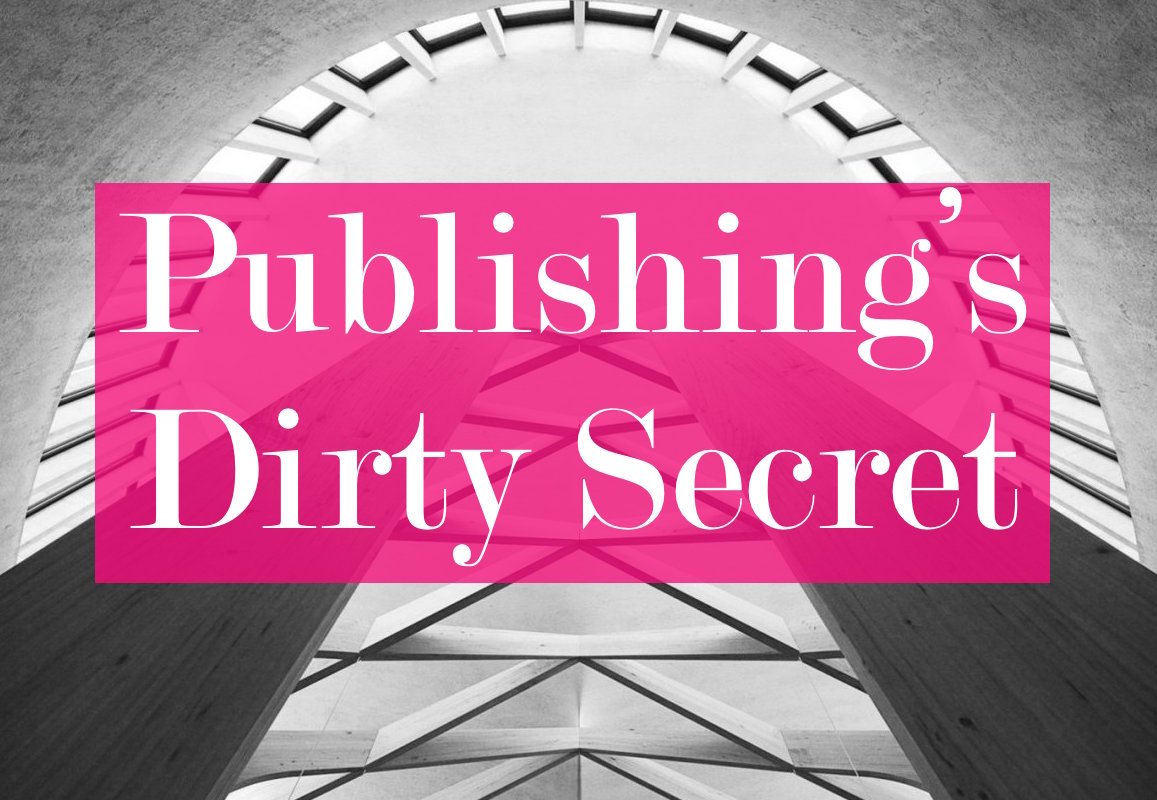
 Having interviewed just over
Having interviewed just over 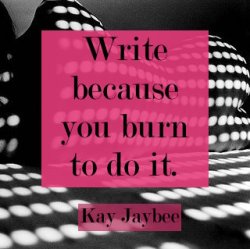 was so much poorly written erotica. How hard could it be to climb to the top of that dung heap? However, the more I read, the more I discovered truly talented writers, and became determined to write quality stories myself.”
was so much poorly written erotica. How hard could it be to climb to the top of that dung heap? However, the more I read, the more I discovered truly talented writers, and became determined to write quality stories myself.” drawing of two pricks. The editor of the volume asked me to remove the phrase.” He felt obliged to concede, being a young academic and this being his first publication. He asserts that he would not do so today.
drawing of two pricks. The editor of the volume asked me to remove the phrase.” He felt obliged to concede, being a young academic and this being his first publication. He asserts that he would not do so today. only benefit of a publisher is the promise of reviews, which many small presses don’t bother to solicit.”
only benefit of a publisher is the promise of reviews, which many small presses don’t bother to solicit.”  horror novel through a small press. It was a disaster. There was so little editorial work done that it went on sale within a week of me submitting it. I should have smelled a rat. They did no promo and the company quickly went bust.”
horror novel through a small press. It was a disaster. There was so little editorial work done that it went on sale within a week of me submitting it. I should have smelled a rat. They did no promo and the company quickly went bust.”  with ‘publishing’ in that sentence.”
with ‘publishing’ in that sentence.” books visible’. She asserts, “My advice to new authors would be to ensure you have built a brand before you set out. Know the image you’d like to portray to your followers and work hard to build on what you’ve achieved.” She also warns against expecting ‘instant success’.
books visible’. She asserts, “My advice to new authors would be to ensure you have built a brand before you set out. Know the image you’d like to portray to your followers and work hard to build on what you’ve achieved.” She also warns against expecting ‘instant success’. 
 Exploring the burning pleasure and pain of physical desire is Laura Esquivel’s ‘Like Water for Chocolate’. It is an erotic tale in the purest sense, delving the agony of repressed love, and the intense delight and suffering of which we are capable. It evokes the smells and tastes of the body, as well as those of the kitchen, showing the power of the senses to overwhelm us.
Exploring the burning pleasure and pain of physical desire is Laura Esquivel’s ‘Like Water for Chocolate’. It is an erotic tale in the purest sense, delving the agony of repressed love, and the intense delight and suffering of which we are capable. It evokes the smells and tastes of the body, as well as those of the kitchen, showing the power of the senses to overwhelm us. touching. She is ‘like water for hot chocolate’ because she is ‘on the verge of boiling over‘ with desire.
touching. She is ‘like water for hot chocolate’ because she is ‘on the verge of boiling over‘ with desire. Passion is contained and beaten into submission as surely as Tita herself whips eggs into meringue. Each dish provides a metaphor for Tita’s love life and cooking remains her only way of expressing her emotions, with magical results. Weeping as she beats the wedding cake for Pedro and Rosaura, her tears enter the mixture. As each guest takes a bite, they are overcome by an intense longing for their lost loves, by sadness at opportunities missed and sacrifices made. Their despair is such that they end by vomiting it from their bodies, like poison.
Passion is contained and beaten into submission as surely as Tita herself whips eggs into meringue. Each dish provides a metaphor for Tita’s love life and cooking remains her only way of expressing her emotions, with magical results. Weeping as she beats the wedding cake for Pedro and Rosaura, her tears enter the mixture. As each guest takes a bite, they are overcome by an intense longing for their lost loves, by sadness at opportunities missed and sacrifices made. Their despair is such that they end by vomiting it from their bodies, like poison. powerfully charged that the wooden boards catch fire.
powerfully charged that the wooden boards catch fire. and rising to the position of general. There, she meets Juan once more, and they become married, fulfilling the destiny denied Tita and Pedro. In many ways, Gertrudis’ path throws that of Tita into sharp relief, she being confined to the kitchen and to watching over other family members, while Gertrudis, literally helps lead a revolution. She so firmly throws off all conventions, fully embracing her sexual nature, that we might argue that she, rather than Tita, would have made a more fascinating heroine.
and rising to the position of general. There, she meets Juan once more, and they become married, fulfilling the destiny denied Tita and Pedro. In many ways, Gertrudis’ path throws that of Tita into sharp relief, she being confined to the kitchen and to watching over other family members, while Gertrudis, literally helps lead a revolution. She so firmly throws off all conventions, fully embracing her sexual nature, that we might argue that she, rather than Tita, would have made a more fascinating heroine. tunnel appears… and calls us to recover our lost divine origin.’
tunnel appears… and calls us to recover our lost divine origin.’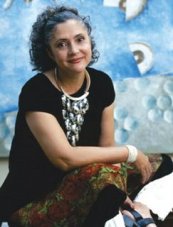


 abomination six centuries earlier, we see not only her capacity to inflict pain on others, but the pain she carries within herself.
abomination six centuries earlier, we see not only her capacity to inflict pain on others, but the pain she carries within herself.
 where ideas may be further debated, and professional expertise shared, you may like to visit the
where ideas may be further debated, and professional expertise shared, you may like to visit the 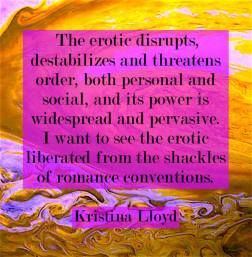 unsurprisingly, apt to denigrate erotic fiction as no more than ‘poorly written filth’.
unsurprisingly, apt to denigrate erotic fiction as no more than ‘poorly written filth’. in their craft, including through editing “I‘d like to see better editing, with consumer dollars following the well-groomed and thoughtful written word.”
in their craft, including through editing “I‘d like to see better editing, with consumer dollars following the well-groomed and thoughtful written word.” disappointed on coming across a book labelled as ‘erotica’, which does not meet their expectations for romantic elements. Meanwhile, erotic fiction authors may be ‘judged’ (and reviewed critically) against criteria they have never attempted to meet.
disappointed on coming across a book labelled as ‘erotica’, which does not meet their expectations for romantic elements. Meanwhile, erotic fiction authors may be ‘judged’ (and reviewed critically) against criteria they have never attempted to meet. men’s writing on the topics of relationships and sex is more often respected, being lauded for insight into human nature and named as literary fiction, while women’s work on the same topics is more generally dismissed. She states, “Romance has a bad reputation as being sub-par… as if what women choose to read isn’t as respectable or reputable as what men choose. The aggravating thing is that when women write about relationships and sex (romance novels), their books are viewed by some with disdain or disinterest. But when a man writes about the same topics, his books are viewed with great respect. He’s said to have great insight into human nature. His books are often lifted out of the romance genre and placed in literary fiction, which some view as having more clout. Women’s voices and insights matter.”
men’s writing on the topics of relationships and sex is more often respected, being lauded for insight into human nature and named as literary fiction, while women’s work on the same topics is more generally dismissed. She states, “Romance has a bad reputation as being sub-par… as if what women choose to read isn’t as respectable or reputable as what men choose. The aggravating thing is that when women write about relationships and sex (romance novels), their books are viewed by some with disdain or disinterest. But when a man writes about the same topics, his books are viewed with great respect. He’s said to have great insight into human nature. His books are often lifted out of the romance genre and placed in literary fiction, which some view as having more clout. Women’s voices and insights matter.” are commercially risk-averse, serving up what they believe audiences wish to consume. The situation has become, largely, a self-perpetuating loop, of authors creating works within a ‘safe’ and market-proven zone.
are commercially risk-averse, serving up what they believe audiences wish to consume. The situation has become, largely, a self-perpetuating loop, of authors creating works within a ‘safe’ and market-proven zone. it shapes our thoughts’. Siri Ousdahl states, “I’d like there to be a larger place for high-quality, graphic sex writing: fiction that is not coy, does not romanticize or trivialize, and is psychologically realistic.”
it shapes our thoughts’. Siri Ousdahl states, “I’d like there to be a larger place for high-quality, graphic sex writing: fiction that is not coy, does not romanticize or trivialize, and is psychologically realistic.” of hiding and downplaying erotica’. As Elizabeth Safleur puts it, “It’d be nice if Amazon didn’t bury our titles.”
of hiding and downplaying erotica’. As Elizabeth Safleur puts it, “It’d be nice if Amazon didn’t bury our titles.”
 starting point for discussion rather than offering any definitive answers.
starting point for discussion rather than offering any definitive answers. ‘becomes disrupted’, through ‘extreme pleasure, pain or mental anguish’. (more
‘becomes disrupted’, through ‘extreme pleasure, pain or mental anguish’. (more  into a realistic vein, much of what people actually want is that which they can’t (or don’t feel they can) have in real life. This is why rape fantasies, incest and other transgressive sexual acts continue to sell erotica and generate clicks. The appeal of the forbidden is as old as the Bible, when Eve and the apple laid the foundation for centuries of sexual taboo. The fact is that we get pleasure from doing that which we’re not ‘supposed’ to do… While some taboos have been neutralized by an expanded notion of sex positivity (for the most part, gay couplings, anal and oral sex and extramarital situations don’t pack the transgressive punch they historically have), the amount of incest porn, tentacle porn, bestiality, non-con and various forms of edge play being consumed has risen…” Malin notes that, as such acts are ‘still taboo’, they ‘retain the power to arouse in ways that non-transgressive acts don’t tend to’.
into a realistic vein, much of what people actually want is that which they can’t (or don’t feel they can) have in real life. This is why rape fantasies, incest and other transgressive sexual acts continue to sell erotica and generate clicks. The appeal of the forbidden is as old as the Bible, when Eve and the apple laid the foundation for centuries of sexual taboo. The fact is that we get pleasure from doing that which we’re not ‘supposed’ to do… While some taboos have been neutralized by an expanded notion of sex positivity (for the most part, gay couplings, anal and oral sex and extramarital situations don’t pack the transgressive punch they historically have), the amount of incest porn, tentacle porn, bestiality, non-con and various forms of edge play being consumed has risen…” Malin notes that, as such acts are ‘still taboo’, they ‘retain the power to arouse in ways that non-transgressive acts don’t tend to’. 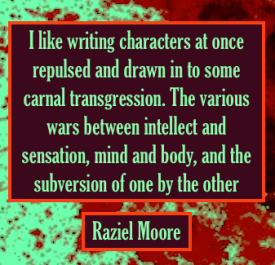 themes. Not only am I turned on by this objectionable thing – I want to think about why I am.”
themes. Not only am I turned on by this objectionable thing – I want to think about why I am.”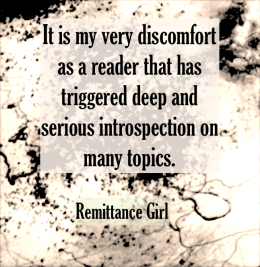 inspiring deeper levels of reflection). This may be why historical erotic fiction is so popular, since the setting more immediately confers a transgressive stance: a feeling of ‘taboo’.
inspiring deeper levels of reflection). This may be why historical erotic fiction is so popular, since the setting more immediately confers a transgressive stance: a feeling of ‘taboo’. that has triggered deep and serious introspection on many topics. These are the books that will stay with me for life.”
that has triggered deep and serious introspection on many topics. These are the books that will stay with me for life.”  able within the limits set by major retailers (we cannot escape the fact that publishers are in business to make money).
able within the limits set by major retailers (we cannot escape the fact that publishers are in business to make money). despite the majority of countries worldwide (and the majority of American states) setting the age of consent below 18 years.
despite the majority of countries worldwide (and the majority of American states) setting the age of consent below 18 years. despise. They all answer one question, without hesitation… what if?”
despise. They all answer one question, without hesitation… what if?” books don’t fit my personal beliefs, my business model, or my audience, so I’m not going to publish them’ and that has to be okay.”
books don’t fit my personal beliefs, my business model, or my audience, so I’m not going to publish them’ and that has to be okay.” 
 with friends and family and how far we keep separate our ‘writing identity’, to avoid social stigmatization.
with friends and family and how far we keep separate our ‘writing identity’, to avoid social stigmatization. avoid ‘judgement’, not just from co-workers or neighbours, but from family and friends, or to avoid negative consequences for those they love.
avoid ‘judgement’, not just from co-workers or neighbours, but from family and friends, or to avoid negative consequences for those they love. Although the journey continues, we’ve come a long way in embracing equality of rights across sexual orientation, race and gender. And yet, whatever their ‘secret’ reading habits, some members of the public draw the line at rubbing shoulders with writers of what many term ‘filth’.
Although the journey continues, we’ve come a long way in embracing equality of rights across sexual orientation, race and gender. And yet, whatever their ‘secret’ reading habits, some members of the public draw the line at rubbing shoulders with writers of what many term ‘filth’. As Spencer Dryden notes: “If my friends, family and associates learned of my interest in erotica, they would drop dead in horror, so I use a pen name.
As Spencer Dryden notes: “If my friends, family and associates learned of my interest in erotica, they would drop dead in horror, so I use a pen name. agent who essentially said, ‘Yuck, don’t contact me again’.”
agent who essentially said, ‘Yuck, don’t contact me again’.”  of my family, but this has been exacerbated by my choice to write erotica. Indeed, I was told I should concentrate my energies ‘on something much better’ after I published my last book. The person involved hadn’t even read the book, and had no idea that, aside from the power play through the sex, it broached some serious subjects that have been prevalent in my family for decades, and that there was more to consider than which pages to bookmark and show their friends in secret! My children never cease to amaze me, though: they have just accepted what I write and are interested in me as a writer, regardless of genre. In fact, my daughter seems to find it pretty cool that I write erotica.”
of my family, but this has been exacerbated by my choice to write erotica. Indeed, I was told I should concentrate my energies ‘on something much better’ after I published my last book. The person involved hadn’t even read the book, and had no idea that, aside from the power play through the sex, it broached some serious subjects that have been prevalent in my family for decades, and that there was more to consider than which pages to bookmark and show their friends in secret! My children never cease to amaze me, though: they have just accepted what I write and are interested in me as a writer, regardless of genre. In fact, my daughter seems to find it pretty cool that I write erotica.”

 particularly through dreams.” Jay Willowbay adds his belief that ‘any erotic author that doesn’t mine their own fantasies is ignoring their most bountiful source of vivid and exciting material, and letting it go to waste’. Cari Silverwood continues this train of thought, saying that, if we neglect to use our fantasies we’re unlikely to write scenes which ‘resonate’. Tamsin Flowers comments that fantasies feed into her work ‘either explicitly or less directly, lending shade and nuance’.
particularly through dreams.” Jay Willowbay adds his belief that ‘any erotic author that doesn’t mine their own fantasies is ignoring their most bountiful source of vivid and exciting material, and letting it go to waste’. Cari Silverwood continues this train of thought, saying that, if we neglect to use our fantasies we’re unlikely to write scenes which ‘resonate’. Tamsin Flowers comments that fantasies feed into her work ‘either explicitly or less directly, lending shade and nuance’. Tabitha Rayne also asserts that personal fantasies are the engine behind her writing, saying, “No matter what I write, in that moment, it is my desire. It is absolutely my fantasy.” She notes that what stirs her one day can be very different the next.
Tabitha Rayne also asserts that personal fantasies are the engine behind her writing, saying, “No matter what I write, in that moment, it is my desire. It is absolutely my fantasy.” She notes that what stirs her one day can be very different the next. The key word here is ‘fantasy’. The very act of fantasizing allows us to control the details; we are pulling all the strings. Those fantasies are of our choosing, and we inwardly narrate them just the way we decide upon. This is not to say that writers, or readers, who enjoy the fantasy of ‘forced seduction’ are complacent regarding the brutal crime of rape. The fictional-fantasy world of ravishment is a different beast to real-life sexual assault.
The key word here is ‘fantasy’. The very act of fantasizing allows us to control the details; we are pulling all the strings. Those fantasies are of our choosing, and we inwardly narrate them just the way we decide upon. This is not to say that writers, or readers, who enjoy the fantasy of ‘forced seduction’ are complacent regarding the brutal crime of rape. The fictional-fantasy world of ravishment is a different beast to real-life sexual assault. must have consensual, hearts and flowers stories. I can’t understand why eBook stores are being so censorious in the erotica genre, but not horror.”
must have consensual, hearts and flowers stories. I can’t understand why eBook stores are being so censorious in the erotica genre, but not horror.” writing but I also want fiction to be an uninhibited, imaginative space where we can follow characters who are dangerous, or who are in jeopardy, or suffering, or who have unsanctioned desires. These wishes often pull in contrary directions. In erotica, non-con acts are often set within a framework of consent (as in BDSM practice or fantasy role-play) to indicate that the scenario is not real. However, this usually reduces the blood-pumping thrill for me as a reader.”
writing but I also want fiction to be an uninhibited, imaginative space where we can follow characters who are dangerous, or who are in jeopardy, or suffering, or who have unsanctioned desires. These wishes often pull in contrary directions. In erotica, non-con acts are often set within a framework of consent (as in BDSM practice or fantasy role-play) to indicate that the scenario is not real. However, this usually reduces the blood-pumping thrill for me as a reader.”  We can safely assume that those featuring aliens, dinosaurs, yetis, vampires, werewolves and other monstrous and supernatural beasts are likely to spring from the imagination rather than from real life encounters, with the same logic applied to stories of pirates and Vikings and all manner of historical or ‘fantasy’ settings.
We can safely assume that those featuring aliens, dinosaurs, yetis, vampires, werewolves and other monstrous and supernatural beasts are likely to spring from the imagination rather than from real life encounters, with the same logic applied to stories of pirates and Vikings and all manner of historical or ‘fantasy’ settings. encourage people to examine their assumptions about sexuality and live closer to the edge.”
encourage people to examine their assumptions about sexuality and live closer to the edge.” ‘what would otherwise bring only repression and shame’.
‘what would otherwise bring only repression and shame’.

 they’re struggling or uncertain or scared. One that says, ‘Look, everyone’s been there. Everyone’s failed.’”
they’re struggling or uncertain or scared. One that says, ‘Look, everyone’s been there. Everyone’s failed.’” gloriously, or succeeded but had to make sacrifices. These are elements I enjoy exploring in my erotica.”
gloriously, or succeeded but had to make sacrifices. These are elements I enjoy exploring in my erotica.” calls them: to the small lies we tell ourselves, to our unspoken motivations, to the ways in which we manipulate or make use of others.
calls them: to the small lies we tell ourselves, to our unspoken motivations, to the ways in which we manipulate or make use of others. Madeline Moore echoes this, saying, “Many of my ideas could be erotica or horror, depending on the way I twist the tale. I find it interesting that it’s so easy to see a concept going in either direction. I wonder if there’s always a horrifying aspect to sex; or a sexual aspect to horror. Adrenalin is adrenalin, after all; same physical experience interpreted in different ways. It’s all in the mind.”
Madeline Moore echoes this, saying, “Many of my ideas could be erotica or horror, depending on the way I twist the tale. I find it interesting that it’s so easy to see a concept going in either direction. I wonder if there’s always a horrifying aspect to sex; or a sexual aspect to horror. Adrenalin is adrenalin, after all; same physical experience interpreted in different ways. It’s all in the mind.” our compulsions, the dichotomy of pain versus pleasure, and the enigma of sexual connection as the route to ‘loss of self’.
our compulsions, the dichotomy of pain versus pleasure, and the enigma of sexual connection as the route to ‘loss of self’.
 about my own sexuality and desire. Writing has given me an understanding; it has allowed me to own a sexuality I’d been conflicted about and confused by when I was younger.”
about my own sexuality and desire. Writing has given me an understanding; it has allowed me to own a sexuality I’d been conflicted about and confused by when I was younger.”  into worlds that are foreign and slightly magical or dangerous, or squalid… I don’t look for identification in the fiction I read, I look for difference…”
into worlds that are foreign and slightly magical or dangerous, or squalid… I don’t look for identification in the fiction I read, I look for difference…”
 On inviting authors to share their thoughts regarding writing ‘the erotic’, I couldn’t have imagined that so many would respond, nor that they would answer with such honestly. To find out more about them, click
On inviting authors to share their thoughts regarding writing ‘the erotic’, I couldn’t have imagined that so many would respond, nor that they would answer with such honestly. To find out more about them, click  Sometimes, the revelatory urge to write in this way can come as a huge surprise to the author, as if characters have turned wayward, leading us down a path hitherto hidden.
Sometimes, the revelatory urge to write in this way can come as a huge surprise to the author, as if characters have turned wayward, leading us down a path hitherto hidden. she later recognized as being ‘paranormal erotica’. She notes, “It just needed me to discover the genre and realize there was an outlet!”
she later recognized as being ‘paranormal erotica’. She notes, “It just needed me to discover the genre and realize there was an outlet!” Adrea tells us, “What I most felt drawn to reading was the feminine experience of the world, and stories of growth, transformation or dislocation, felt through and mediated by the body. These were the things that I began to write about: Love and longing. Loss. Translating the physical arts I most loved into words: my experiences of dancing and life-modelling. Then, more arduously, carving out narratives of sexual trauma. Death. Then, the sensual pleasures. Sex. Light, dark, light, dark. Always this dance, and writing has helped me embrace the totality in the supposed contradictions.”
Adrea tells us, “What I most felt drawn to reading was the feminine experience of the world, and stories of growth, transformation or dislocation, felt through and mediated by the body. These were the things that I began to write about: Love and longing. Loss. Translating the physical arts I most loved into words: my experiences of dancing and life-modelling. Then, more arduously, carving out narratives of sexual trauma. Death. Then, the sensual pleasures. Sex. Light, dark, light, dark. Always this dance, and writing has helped me embrace the totality in the supposed contradictions.” Similarly, Devi Ansevi recalls wanting to portray an authentic woman’s perspective. She underlines,“Most of the stuff I found when I first started writing fell into two extremes: written from the male perspective – too short, too mechanical, too much like Playboy porn, too unlike how I experienced pleasure; or written from the female perspective – hyper-romantic metaphorical descriptions of making tender love after both parties have declared undying adoration. I wanted hot, detailed, messy sex from a woman’s perspective.”
Similarly, Devi Ansevi recalls wanting to portray an authentic woman’s perspective. She underlines,“Most of the stuff I found when I first started writing fell into two extremes: written from the male perspective – too short, too mechanical, too much like Playboy porn, too unlike how I experienced pleasure; or written from the female perspective – hyper-romantic metaphorical descriptions of making tender love after both parties have declared undying adoration. I wanted hot, detailed, messy sex from a woman’s perspective.” State University in the 1970s, I wrote the usual stories about sex and human relationships, which begin with a couple meeting, going to the apartment of one or the other, going to bed . . . and then the next morning. One day I saw an ad asking for erotic stories for a journal called ‘Yellow Silk’. I had one of those flashes of inspiration, a realization that I’d been writing erotic stories all along, and all I needed to do was fill in what happened during those three dots . . . In 1984, my first erotic story was published in ‘Yellow Silk’; it won first prize, worth $25, which was more money than I’d ever made from writing.”
State University in the 1970s, I wrote the usual stories about sex and human relationships, which begin with a couple meeting, going to the apartment of one or the other, going to bed . . . and then the next morning. One day I saw an ad asking for erotic stories for a journal called ‘Yellow Silk’. I had one of those flashes of inspiration, a realization that I’d been writing erotic stories all along, and all I needed to do was fill in what happened during those three dots . . . In 1984, my first erotic story was published in ‘Yellow Silk’; it won first prize, worth $25, which was more money than I’d ever made from writing.” into exploring more deeply, probing into how people tackle their monsters.
into exploring more deeply, probing into how people tackle their monsters.

 Importantly, the vast majority of writers agree that they pen their words with the intention of reaching out to an audience. As Cari Silverwood notes, “As a writer, I’m not an island. I need my readers. Would I write if I had no readers? No. No. No.” Erotic fiction invites intimacy on a level unseen across other genres, emotionally and physically. There is an electrifying thrill in the knowledge of touching readers, moving them at the most profound level.
Importantly, the vast majority of writers agree that they pen their words with the intention of reaching out to an audience. As Cari Silverwood notes, “As a writer, I’m not an island. I need my readers. Would I write if I had no readers? No. No. No.” Erotic fiction invites intimacy on a level unseen across other genres, emotionally and physically. There is an electrifying thrill in the knowledge of touching readers, moving them at the most profound level.
 a mirror to their own preoccupations, to find a recognisable reflection of their sexual thoughts via fiction. They seek not only self-knowledge but validation of shared ‘sexual humanity’. There is an urgent need to find a resonating truth, to read what already plays out in our imagination.
a mirror to their own preoccupations, to find a recognisable reflection of their sexual thoughts via fiction. They seek not only self-knowledge but validation of shared ‘sexual humanity’. There is an urgent need to find a resonating truth, to read what already plays out in our imagination. One reader asserts, “I’ve been able to positively enhance my pleasure by knowing myself better, through reading fiction. I’m convinced that reading erotica can bring benefits beyond the bedroom too, making us more self-aware. I still have some way to go to express my desires, being afraid of receiving an adverse response from my partner, but I’ve learnt that women possess a tremendous well of sexual desire, needs, interests and fetishes. They share the same sexual drive as men.“
One reader asserts, “I’ve been able to positively enhance my pleasure by knowing myself better, through reading fiction. I’m convinced that reading erotica can bring benefits beyond the bedroom too, making us more self-aware. I still have some way to go to express my desires, being afraid of receiving an adverse response from my partner, but I’ve learnt that women possess a tremendous well of sexual desire, needs, interests and fetishes. They share the same sexual drive as men.“ sci-fi with erotic elements. I think there’s still some way to go before erotic elements become more visible in ‘mainstream’ fiction, and this would be great to see.”
sci-fi with erotic elements. I think there’s still some way to go before erotic elements become more visible in ‘mainstream’ fiction, and this would be great to see.” 
 and who have written so honestly.
and who have written so honestly. Erotic fiction is often dismissed as no more than titillation. We know that it can transport a reader to this state of arousal (and takes skill to do so) yet it also has the power to delve so much deeper. It can examine the psyche in unexpected ways, allowing us to access a realm so often defying words.
Erotic fiction is often dismissed as no more than titillation. We know that it can transport a reader to this state of arousal (and takes skill to do so) yet it also has the power to delve so much deeper. It can examine the psyche in unexpected ways, allowing us to access a realm so often defying words. entering the territory of what it means to be human through a different doorway.”
entering the territory of what it means to be human through a different doorway.” Almost every writer notes that their understanding of their own (and others’) sexuality has expanded as a result of exploration through fiction. Thomas Roche states: “My concept of male sexiness has been thoroughly changed by erotic writing. Reading gay male porn has revised my way of thinking about my own body (even though I identify as straight).” Nicholas Tanek adds, “I like to explore the themes of individuality and self-expression. I believe that, in accepting your kink, you gain self-knowledge; you look at the world in a different and beautiful way.”
Almost every writer notes that their understanding of their own (and others’) sexuality has expanded as a result of exploration through fiction. Thomas Roche states: “My concept of male sexiness has been thoroughly changed by erotic writing. Reading gay male porn has revised my way of thinking about my own body (even though I identify as straight).” Nicholas Tanek adds, “I like to explore the themes of individuality and self-expression. I believe that, in accepting your kink, you gain self-knowledge; you look at the world in a different and beautiful way.” while female authorship (and female characterisation) is generally said to embody a greater degree of introspection, of internal dialogue and of emotional conflict. However, it would be ridiculous to assert that men are less able, or less likely, to use the latter technique. Clearly, it would as incorrect to say that women can only write emotional-romantic fiction as to say that men universally write in a brusque ‘down-and-dirty’ style.
while female authorship (and female characterisation) is generally said to embody a greater degree of introspection, of internal dialogue and of emotional conflict. However, it would be ridiculous to assert that men are less able, or less likely, to use the latter technique. Clearly, it would as incorrect to say that women can only write emotional-romantic fiction as to say that men universally write in a brusque ‘down-and-dirty’ style.  A great many male author respondents feel it to be almost a ‘mission’ to push against stereotypes and narrow social expectations, challenging us to rethink assumptions. Many mention wishing to write stories incorporating older (and less conventionally attractive) protagonists, wider ethnicities and protagonists living with challenges to physical or mental health.
A great many male author respondents feel it to be almost a ‘mission’ to push against stereotypes and narrow social expectations, challenging us to rethink assumptions. Many mention wishing to write stories incorporating older (and less conventionally attractive) protagonists, wider ethnicities and protagonists living with challenges to physical or mental health.



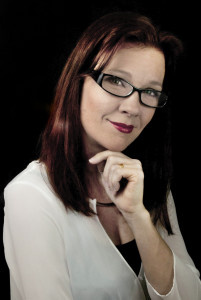

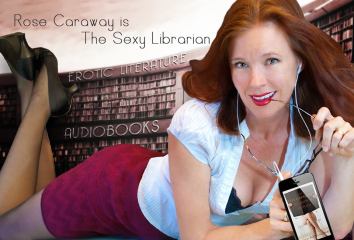





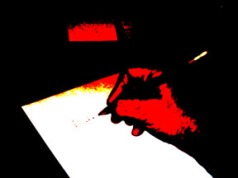 I first posted this challenge in June, noting that, as authors, we share a common humanity, but that we write from a position limited by gender, social background, ethnicity, cultural environment and sexual orientation, as well as by our own life experience.
I first posted this challenge in June, noting that, as authors, we share a common humanity, but that we write from a position limited by gender, social background, ethnicity, cultural environment and sexual orientation, as well as by our own life experience.





 ranscendence, of sexual gratification and drug-induced otherness.
ranscendence, of sexual gratification and drug-induced otherness. ‘I wake to find your presence still alighting on my skin, a fragment of your warmth, the weight of you still pressing, and a blurred memory of the dream’s end.’
‘I wake to find your presence still alighting on my skin, a fragment of your warmth, the weight of you still pressing, and a blurred memory of the dream’s end.’ moving the reader emotionally, intellectually and viscerally, our hearts captured and broken alongside those of his anonymous protagonists.
moving the reader emotionally, intellectually and viscerally, our hearts captured and broken alongside those of his anonymous protagonists.

 Thank you to
Thank you to 








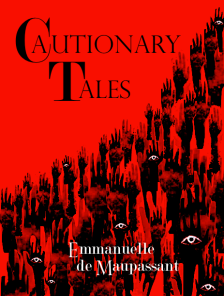 also some of hope, or alternative paths of happiness. In my final story, the two sisters decide to set up home independently, without husbands at all, despite having begun the story intent on finding them. Naturally, they have no intention of giving up on the pleasure of sex!
also some of hope, or alternative paths of happiness. In my final story, the two sisters decide to set up home independently, without husbands at all, despite having begun the story intent on finding them. Naturally, they have no intention of giving up on the pleasure of sex!
 richly poetic, dramatic prose, they are also diverse in content. Some capture a fleeting moment of desire, or offer a glimpse at the eternal. They unfailingly explore the human condition, in all its madcap glory.
richly poetic, dramatic prose, they are also diverse in content. Some capture a fleeting moment of desire, or offer a glimpse at the eternal. They unfailingly explore the human condition, in all its madcap glory.

 lose ourselves in another, to the luscious lapping of a lover’s cream.
lose ourselves in another, to the luscious lapping of a lover’s cream. In such a setting, to seek out sex with smell and taste becomes a fetish in itself. Finding an arse crack tickled by hair takes the protagonist to heady heights of arousal. This is a clever celebration of the human body, in its all sweaty, hairy glory.
In such a setting, to seek out sex with smell and taste becomes a fetish in itself. Finding an arse crack tickled by hair takes the protagonist to heady heights of arousal. This is a clever celebration of the human body, in its all sweaty, hairy glory. Meanwhile, her descriptions of oral sex are unsurpassed. I was left dry-mouthed and anticipatory.
Meanwhile, her descriptions of oral sex are unsurpassed. I was left dry-mouthed and anticipatory. Intimate
Intimate Witty
Witty Wistful
Wistful
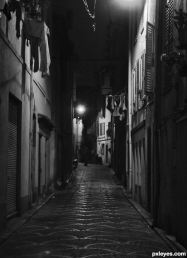

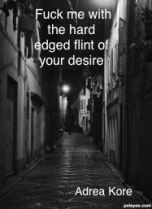 To hear the full (6 minute) audio recording of this velvet fantasy, inspired by Film Noire, and to learn more about intent in erotic fiction, visit Adrea’s
To hear the full (6 minute) audio recording of this velvet fantasy, inspired by Film Noire, and to learn more about intent in erotic fiction, visit Adrea’s 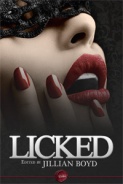
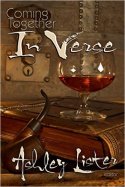
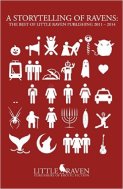

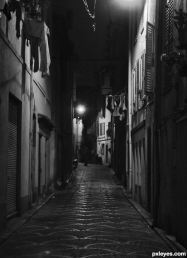











 Katie in Love
Katie in Love James
James

 (Richard V. Raiment)
(Richard V. Raiment)
 Schechter)
Schechter) a nomination for the release of the 75th Anniversary Edition
a nomination for the release of the 75th Anniversary Edition
 How delicious is the sensation of fear, an echo of carnal pleasure. Like sexual desire, it titillates not only the mind but the senses. As we know, a good ‘scare’ is a wonderful aphrodisiac.
How delicious is the sensation of fear, an echo of carnal pleasure. Like sexual desire, it titillates not only the mind but the senses. As we know, a good ‘scare’ is a wonderful aphrodisiac. He recalls, with shame and fascination, his temptation to submit: ‘There was a deliberate voluptuousness which was both thrilling and repulsive, and as she arched her neck she actually licked her lips like an animal, till I could see in the moonlight the moisture shining on the scarlet lips and on the red tongue as it lapped the white sharp teeth. Lower and lower went her head as the lips went below the range of my mouth and chin and seemed to fasten on my throat. I could feel the soft, shivering touch of the lips on the supersensitive skin of my throat, and the hard dents of two sharp teeth, just touching and pausing there. I closed my eyes in a languorous ecstasy and waited – waited with beating heart.’
He recalls, with shame and fascination, his temptation to submit: ‘There was a deliberate voluptuousness which was both thrilling and repulsive, and as she arched her neck she actually licked her lips like an animal, till I could see in the moonlight the moisture shining on the scarlet lips and on the red tongue as it lapped the white sharp teeth. Lower and lower went her head as the lips went below the range of my mouth and chin and seemed to fasten on my throat. I could feel the soft, shivering touch of the lips on the supersensitive skin of my throat, and the hard dents of two sharp teeth, just touching and pausing there. I closed my eyes in a languorous ecstasy and waited – waited with beating heart.’ death, to longing, to violence, to the devouring of flesh, and of course, to biting and sucking!
death, to longing, to violence, to the devouring of flesh, and of course, to biting and sucking! are forced to succumb. Here, if nowhere else, we may embrace dual-edged fantasies.
are forced to succumb. Here, if nowhere else, we may embrace dual-edged fantasies.


 glaring down at her husband, quite as she had done in life.
glaring down at her husband, quite as she had done in life. The wife’s spectre grimaced and nodded, at which the wicked Likho stripped off the nightgown, then the dead woman’s pliant skin, peeling back the flaccid folds. These it left in a slack heap.
The wife’s spectre grimaced and nodded, at which the wicked Likho stripped off the nightgown, then the dead woman’s pliant skin, peeling back the flaccid folds. These it left in a slack heap. When the husband returned home, all was as it had been; there was not a speck of blood to be seen, although the strangest smell of rotten eggs lingered.
When the husband returned home, all was as it had been; there was not a speck of blood to be seen, although the strangest smell of rotten eggs lingered. ceiling. Both assumed that the corpse had returned to life to berate them.
ceiling. Both assumed that the corpse had returned to life to berate them.


